Here are my favorite poems about forbidden lovers categorized:
- Famous poems about forbidden love
- Poems about secret love affairs
- Poems about obsessive love
- Short poems about forbidden love
So if you want the best poems about forbidden lovers, then you’re in the right place.
Keep reading!
- 67 Enthralling Poems About Cheating
- 143 Piercing Poems About Loving Someone You Shouldn’t
- 85 Intimate Poems About Secret Love
- 69 Somber Poems About Loving Someone You Can’t Have

Harrowing Poems About Forbidden Lovers
Embark on an intoxicating journey into the realm of forbidden love with our meticulously curated collection of handpicked poems.
Explore the intricate nuances of forbidden lovers through captivating verses, ranging from poignant odes to forbidden love to the intense depths of obsessive devotion, all thoughtfully categorized for your exploration.
Lose yourself in the passionate, forbidden narratives woven within these remarkable poems, as you discover the power, longing, and complexities of forbidden love, all nestled conveniently in one captivating anthology.
Let’s get started!
My #1 Favorite Poem About Forbidden Lovers
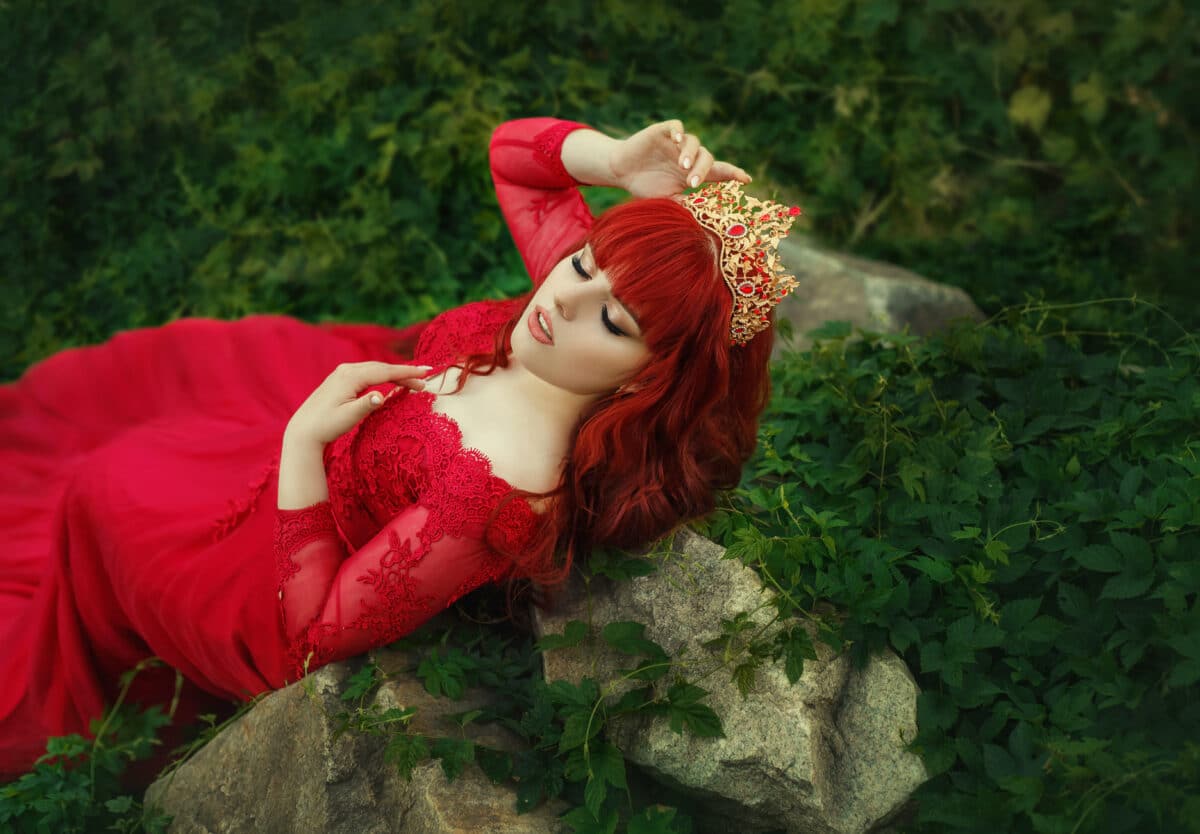
“Forbidden Love” by Barry Cornwall
I love thee! Oh, the strife, the pain,
The fiery thoughts that through me roll!
I love thee! Look, —again, again!
O Stars ! that thou couldst read my soul.
I would thy bright bright eye could pierce
The crimson folds that hide my heart,
Then wouldst thou find the serpent fierce,
That stings me,-and will not depart!
Look love upon me, with thine eyes!
Yet, no,―men’s evil tongues are nigh:
Look pity, then, and with thy sighs
Waste music on me-till I die!
Yet, love not ! sigh not! Turn (thou must)
Thy beauty from me, sweet and kind;
‘Tis fit that I should burn to dust,
To death, because I am not blind!
I love thee, and I live! The moon
Who sees me from her calm above,
The Wind who weaves her dim soft tune
About me, know how much I love!
Nought else, save Night and the lonely Hour,
E’er heard my passion wild and strong:
Even thou yet deem’st not of thy power,
Unless-thou read’st aright my song!
Famous Poems About Forbidden Love
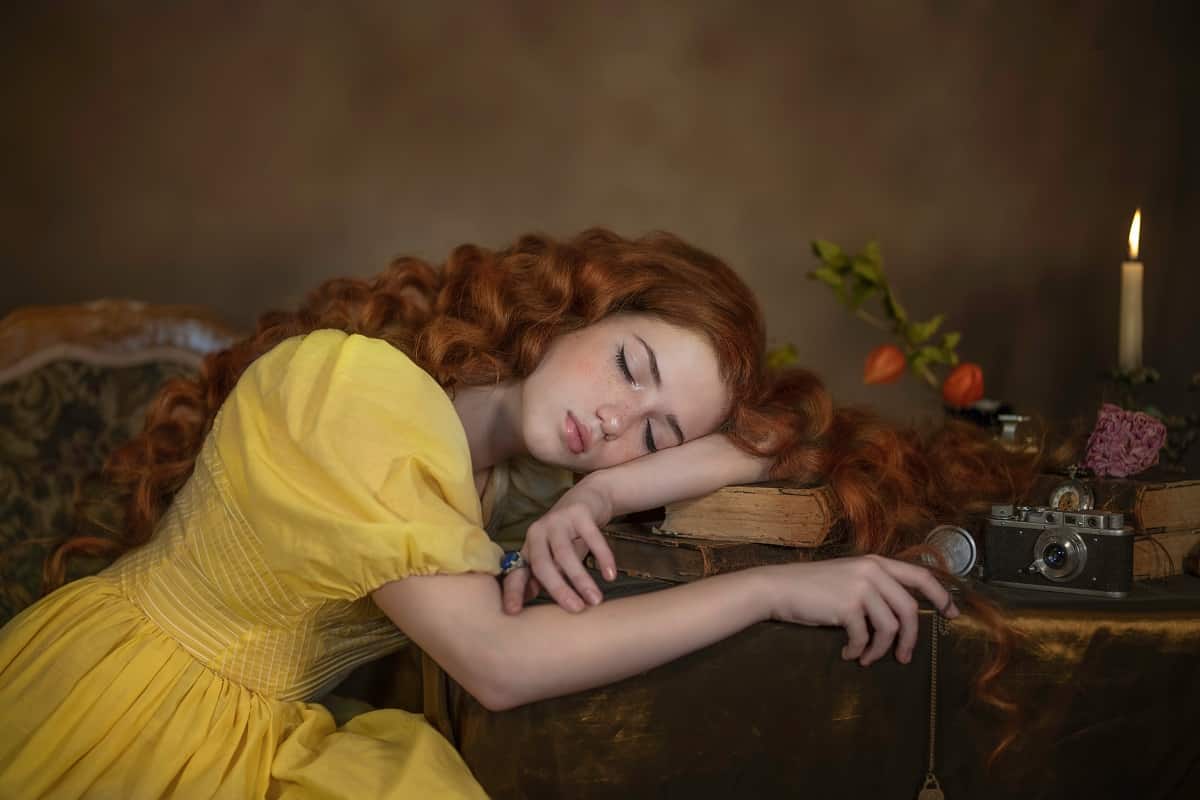
“Passion” by Charlotte Brontë
Some have won a wild delight,
By daring wilder sorrow;
Could I gain thy love to-night,
I’d hazard death to-morrow.
Could the battle-struggle earn
One kind glance from thine eye,
How this withering heart would burn,
The heady fight to try!
Welcome nights of broken sleep,
And days of carnage cold,
Could I deem that thou wouldst weep
To hear my perils told.
Tell me, if with wandering bands
I roam full far away,
Wilt thou, to those distant lands,
In spirit ever stray?
Wild, long, a trumpet sounds afar;
Bid me–bid me go
Where Seik and Briton meet in war,
On Indian Sutlej’s flow.
Blood has dyed the Sutlej’s waves
With scarlet stain, I know;
Indus’ borders yawn with graves,
Yet, command me go!
Though rank and high the holocaust
Of nations, steams to heaven,
Glad I’d join the death-doomed host,
Were but the mandate given.
Passion’s strength should nerve my arm,
Its ardour stir my life,
Till human force to that dread charm
Should yield and sink in wild alarm,
Like trees to tempest-strife.
If, hot from war, I seek thy love,
Darest thou turn aside?
Darest thou, then, my fire reprove,
By scorn, and maddening pride?
No–my will shall yet control
Thy will, so high and free,
And love shall tame that haughty soul–
Yes–tenderest love for me.
I’ll read my triumph in thine eyes,
Behold, and prove the change;
Then leave, perchance, my noble prize,
Once more in arms to range.
I’d die when all the foam is up,
The bright wine sparkling high;
Nor wait till in the exhausted cup
Life’s dull dregs only lie.
Then Love thus crowned with sweet reward,
Hope blest with fulness large,
I’d mount the saddle, draw the sword,
And perish in the charge!
“When We Two Parted” by Lord Byron
When we two parted
In silence and tears,
Half broken-hearted,
To sever for years,
Pale grew thy cheek and cold,
Colder thy kiss;
Truly that hour foretold
Sorrow to this.
The dew of the morning
Sunk chill on my brow—
I felt like the warning
Of what I feel now.
Thy vows are all broken,
And light is thy fame;
I hear thy name spoken,
And share in its shame.
They name thee before me,
Aknell to mine ear,
A shudder comes o’er me—
Why wert thou so dear ?
They know not I knew thee,
Who knew thee too well:—
Long, long shall I rue thee,
Too deeply to tell.
In secret we met—
In silence I grieve,
That thy heart could forget,
Thy spirit deceive.
If I should meet thee
After long years,
How should I greet thee?—
In silence and tears.
“Sonnets: Idea LXI” by Michael Drayton
Since there’s no help, come let us kiss and part.
Nay, I have done, you get no more of me;
And I am glad, yea glad with all my heart,
That thus so cleanly I myself can free.
Shake hands for ever, cancel all our vows,
And when we meet at any time again,
Be it not seen in either of our brows
That we one jot of former love retain.
Now at the last gasp of Love’s latest breath,
When, his pulse failing, Passion speechless lies;
When Faith is kneeling by his bed of death,
And Innocence is closing up his eyes—
Now, if thou wouldst, when all have given him over,
From death to life thou might’st him yet recover!
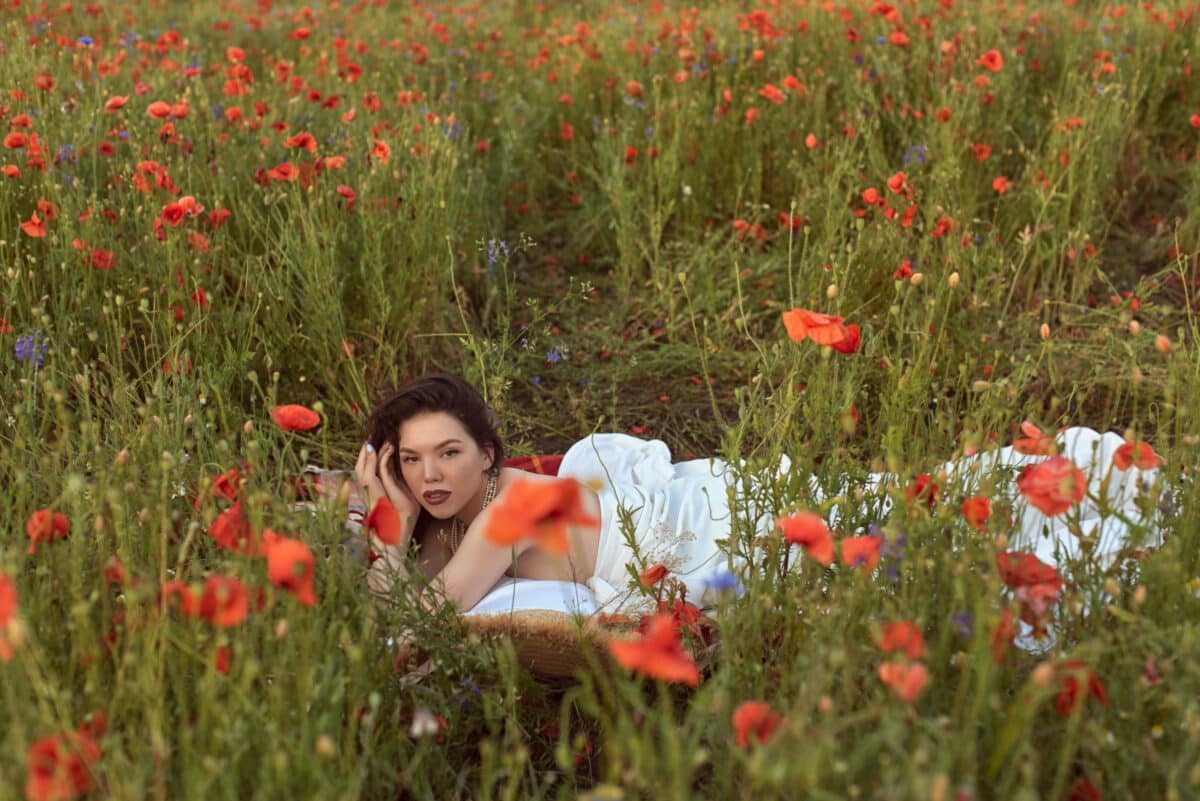
“Secret Love” by John Clare
I hid my love when young till I
Couldn’t bear the buzzing of a fly;
I hid my love to my despite
Till I could not bear to look at light:
I dare not gaze upon her face
But left her memory in each place;
Where’er I saw a wild flower lie
I kissed and bade my love good-bye.
I met her in the greenest dells,
Where dewdrops pearl the wood bluebells;
The lost breeze kissed her bright blue eye,
The bee kissed and went singing by,
A sunbeam found a passage there,
A gold chain round her neck so fair;
As secret as the wild bee’s song
She lay there all the summer long.
I hid my love in field and town
Till e’en the breeze would knock me down;
The bees seemed singing ballads o’er,
The fly’s bass turned a lion’s roar;
And even silence found a tongue,
To haunt me all the summer long;
The riddle nature could not prove
Was nothing else but secret love.
“Whoso List to Hunt” by Sir Thomas Wyatt
Whoso list to hunt, I know where is an hind,
But as for me, alas, I may no more.
The vain travail hath wearied me so sore,
I am of them that farthest cometh behind.
Yet may I by no means my wearied mind
Draw from the deer, but as she fleeth afore
Fainting I follow. I leave off therefore,
Since in a net I seek to hold the wind.
Who list her hunt, I put him out of doubt,
As well as I may spend his time in vain.
And graven with diamonds in letters plain
There is written, her fair neck round about:
“Noli me tangere, for Caesar’s I am,
And wild for to hold, though I seem tame.”
“Sonnet 18” by William Shakespeare
Shall I compare thee to a summer‘s day?
Thou art more lovely and more temperate:
Rough winds do shake the darling buds of May,
And summer‘s lease hath all too short a date:
Sometime too hot the eye of heaven shines,
And often is his gold complexion dimm‘d,
And every fair from fair sometime declines,
By chance, or nature‘s changing course untrimm‘d:
But thy eternal summer shall not fade,
Nor lose possession of that fair thou ow‘st,
Nor shall death brag thou wander‘st in his shade,
When in eternal lines to time thou grow‘st,
So long as men can breathe, or eyes can see,
So long lives this, and this gives life to thee.

“Secrecy Protested” by Thomas Carew
Fear not, dear Love, that I’ll reveal
Those hours of pleasure we two steal;
No eye shall see, nor yet the Sun
Descry, what thou and I have done.
No ear shall hear our love, but we
As silent as the night will be;
The God of Love himself (whose dart
Did first wound mine, and then thy heart),
Shall never know that we can tell
What sweets in stol’n embraces dwell.
This only means may find it out:
If, when I die, physicians doubt
What caused my death, and there to view
Of all their judgments which was true,—
Rip up my heart, oh! then, I fear,
The world will see thy picture there.
“Why” by Mary T. Lathrop
Why do I love you? I don’t know!
They say Love never gives a reason;
But that he has one I don’t doubt,
Do you? You do! That’s downright treason
Not always, let me tell you, sir,
Love practiced such excess of prudence ;
‘Twas once his custom to explain
The why and wherefore to his students.
And how to solve each puzzling case
He taught by rule and illustration;
But skeptics such as you have made
Love shy of giving demonstrations.
Why foolish mortals love at all,
Why we two hold each other dearest,
How long ‘ twill last, and where ’twill end,
You’d like to know, you precious querist?
You never will ! I’ll tell you that,
Yet still maintain my first assertion:
Love understands what he’s about,
And blinds you first, for his diversion.
Ah, why do I love you? If I knew,
I would not tell you-no, no, never!
For souls like yours were made to seek,
And mine to hide, you see, forever.
There’s little, sir, you don’t find out,
But since that little makes life pleasant,
I think I’ll keep it secret still,
And so keep you, too, for the present.
“The Silent Lover” by Sir Walter Raleigh
Passions are likened best to floods and streams;
The shallow murmur, but the deep are dumb;
So, when affections yield discourse, it seems
The bottom is but shallow whence they come.
They that are rich in words, in words discover
That they are poor in that which makes a lover.
Wrong not, sweet empress of my heart,
The merit of true passion,
With thinking that he feels no smart
That sues for no compassion;
Since if my plaints serve not to approve
The conquest of thy beauty,
It comes not from defect of love,
But from excess of duty.
For knowing that I sue to serve
A saint of such perfection,
As all desire, but none deserve,
A place in her affection,
I rather choose to want relief
Than venture the revealing;
Where glory recommends the grief,
Despair distrusts the healing.
Thus those desires that aim too high
For any mortal lover,
When reason cannot make them die,
Discretion doth them cover.
Yet, when discretion doth bereave
The plaints that they should utter,
Then thy discretion may perceive
That silence is a suitor.
Silence in love bewrays more woe
Than words, though ne’er so witty;
A beggar that is dumb, you know,
May challenge double pity.
Then wrong not dearest of my heart,
My true, though secret, passion ;
He smarteth most that hides his smart,
And sues for no compassion.
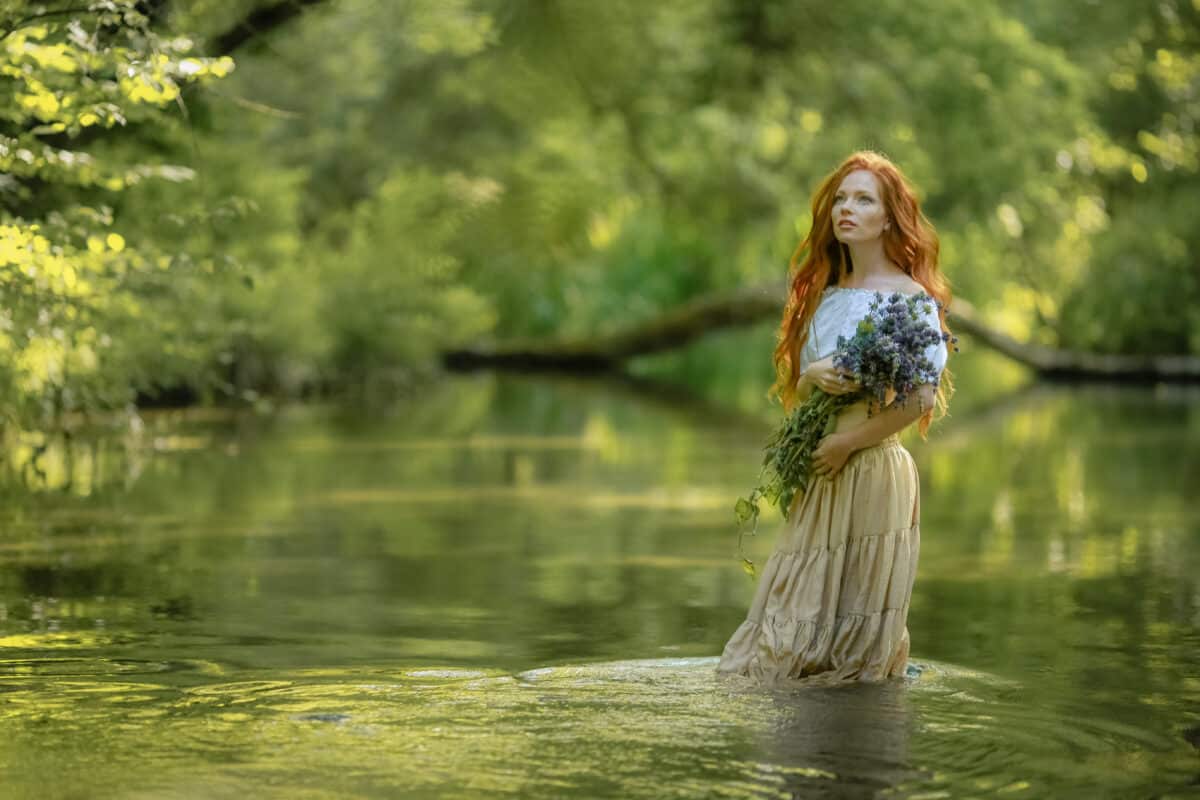
“Penance” by Anonymous
He kissed me—and I know ‘ twas wrong,
For he was neither kith nor kin.
Need one do penance very long
For such a tiny little sin?
He pressed my hand-that wasn’t right!
Why will men have such wicked ways?
It wasn’t for a minute, quite,
But in it there were days and days!
There’s mischief in the moon, I know ;
I’m positive I saw her wink
When I requested him to go;
I meant it, too, I almost think.
But, after all, I’m not to blame,
He took the kiss ! I do think men
Are quite without the sense of shame!
I wonder when he’ll come again?
“Romeo and Juliet, Act III, Scene II” by William Shakespeare
Juliet waits for nightfall when Romeo will return.
JULIET: Gallop apace, you fiery-footed steeds,
Towards Phoebus’ lodging: such a waggoner
As Phaethon would whip you to the west,
And bring in cloudy night immediately.
Spread thy close curtain, love-performing night,
That runaway’s eyes may wink and Romeo
Leap to these arms, untalk’d of and unseen.
Lovers can see to do their amorous rites
By their own beauties; or, if love be blind,
It best agrees with night. Come, civil night,
Thou sober-suited matron, all in black,
And learn me how to lose a winning match,
Play’d for a pair of stainless maidenhoods.
Hood my unmann’d blood bating in my cheeks
With thy black mantle, till strange love grown bold
Think true love acted simple modesty.
Come, night, come, Romeo, come, thou day in night;
For thou wilt lie upon the wings of night
Whiter than new snow on a raven’s back.
Come, gentle night, come, loving, black-brow’d night,
Give me my Romeo; and, when he shall die,
Take him and cut him out in little stars,
And he will make the face of heaven so fine
That all the world will be in love with night
And pay no worship to the garish sun.
O, I have bought the mansion of a love,
But not possess’d it, and, though I am sold,
Not yet enjoy’d: so tedious is this day
As is the night before some festival
To an impatient child that hath new robes
And may not wear them. O, here comes my nurse,
And she brings news, and every tongue that speaks
But Romeo’s name speaks heavenly eloquence.
“Romeo and Juliet, Act I, Scene I” by William Shakespeare
ROMEO: Why such is love’s transgression.
Griefs of mine own lie heavy in my breast,
Which thou wilt propagate to have it prest
With more of thine. This love that thou hast shown
Doth add more grief to too much of mine own.
Love is a smoke made with the fume of sighs;
Being purg’d, a fire sparkling in lovers’ eyes;
Being vex’d, a sea nourish’d with lovers’ tears:
What is it else? A madness most discreet,
A choking gall, and a preserving sweet.
Farewell, my coz.
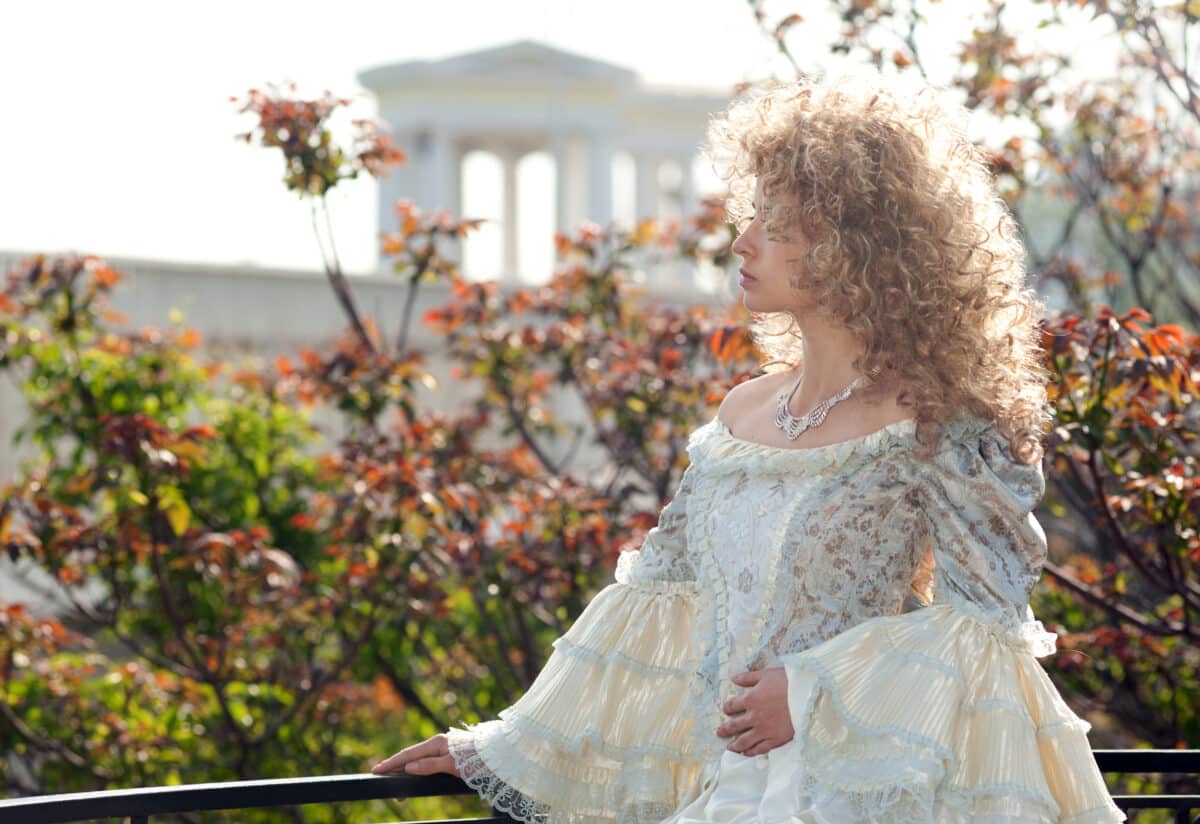
“Fatality” by Owen Meredith
I have seen her, with her golden hair,
And her exquisite primrose face,
And the violet in her eyes ;
And my heart received its own despair
The thrall of a hopeless grace,
And the knowledge of how youth dies.
Live hair afloat with snakes of gold,
And a throat as white as snow,
And a stately figure and foot,
And that faint, pink smile, so sweet and cold,
Like a wood- anemone cloud below
The shade of an ilex root.
And her delicate, milk-white hand in mine,
And her pensive voice in my ear,
And her eyes downcast as we speak.
I am filled with a rapture vague and fine,
For there has fallen a sparkling tear
Over her soft pale cheek.
And I know that all is hopeless now,
And that which might have been,
Had she only waited a year or two,
Is turned to a wild regret, I know,
Which will haunt us both, whatever the scene,
And whatever the path we go.
Meanwhile, for one moment, hand in hand,
We gaze on each other’s eyes,
And the red moon rises above us.
We linger in love with the lovely land
Italy, with its yearning skies,
And its wild, white stars above us.
“Three and One” by Ella Wheeler Wilcox
They stray through the sunlit summery weather,
Two maids and a youth, ‘neath skies of blue;
And each of the three, as they walk together,
Is secretly wishing there were but two.
Yet the maidens love each other dearly,
And both love the youth, if he only knew;
But he loves one as a sweet friend merely,
And the other he loves as lovers do.
She who had won his heart’s best passion
Gives back a fancy, a passing whim;
She loves him only coquette fashion,
While the other maid-she would die for him.
And while they wander across the meadows,
Their three hearts brimming with love’s sweet pain,
Fate is sitting within the shadows,
Weaving for them a tangled skein.
And she shall weave till the autumn weather,
When th’ threads shall unravel and all come straight ;
But well she loveth to knot them together,
And tangle the ends for a time, doth Fate!
She at whose feet is cast that treasure,
A man’s heart strong with love’s full tide,
Shall use it awhile as a thing of pleasure,
Bruise it, and break it, and cast it aside.
And she who is loved as a sweet friend only
Shall find it bleeding upon the ground,
And being herself so sad and lonely,
Shall strive through pity to heal the wound.
And after a time, when she’s hushed its grieving,
She shall take it, with all its wounds and scars,
And hide it away in her breast, believing
‘Tis the richest treasure under the stars.
But the three walk on o’er the sunlit meadows,
And dream all life is a summer land;
And they pass by one who sits in the shadows,
And sees not the webs in her bony hand.
And so we all, while the days are flitting,
Plan out a future of joys and pains,
And see not Fate in the shadows sitting,
Knotting and tying the tangled skeins.
The vows we vow with a fond “Forever”,
The pledge we deem there can naught befall,
Fate with a touch of her hand can sever.
Ah me! ’tis folly to plan at all.
Those that we love may the soonest fail us;
We may grow to worship where now we hate;
And what do our plans and dreams avail us?
Better to leave it all with Fate.
“Saved” by Anonymous
I love you so dear soul, I love you so!
And yet it is so hard-and yet I know
That I must hold my love with tiger clutch,
Lest you who know so much, should know too much.
For what you see ‘ tis safe for you to know,
But what I hide would be my overthrow.
I have to hold my hands when near you, there,
To keep my straying fingers from your hair.
My longing arms I have to check and chide,
Or they would clasp you closely to my side.
My eager, yearning lips I must restrain,
And if you knew the passion of my soul,
Yourself no longer you would thus control.
My love so infinite, and yours so sweet,
Would bring you all-confessing to my feet.
I would not-oh, I would not have you know;
God’s mercy will not let me tempt you so;
And so forever we must stand apart,
Heart always vainly yearning after heart;
And all our mission to each other be
Still unfulfilled, to all eternity;
Unless the time shall come-above, below
When I may tell you that I love you so.
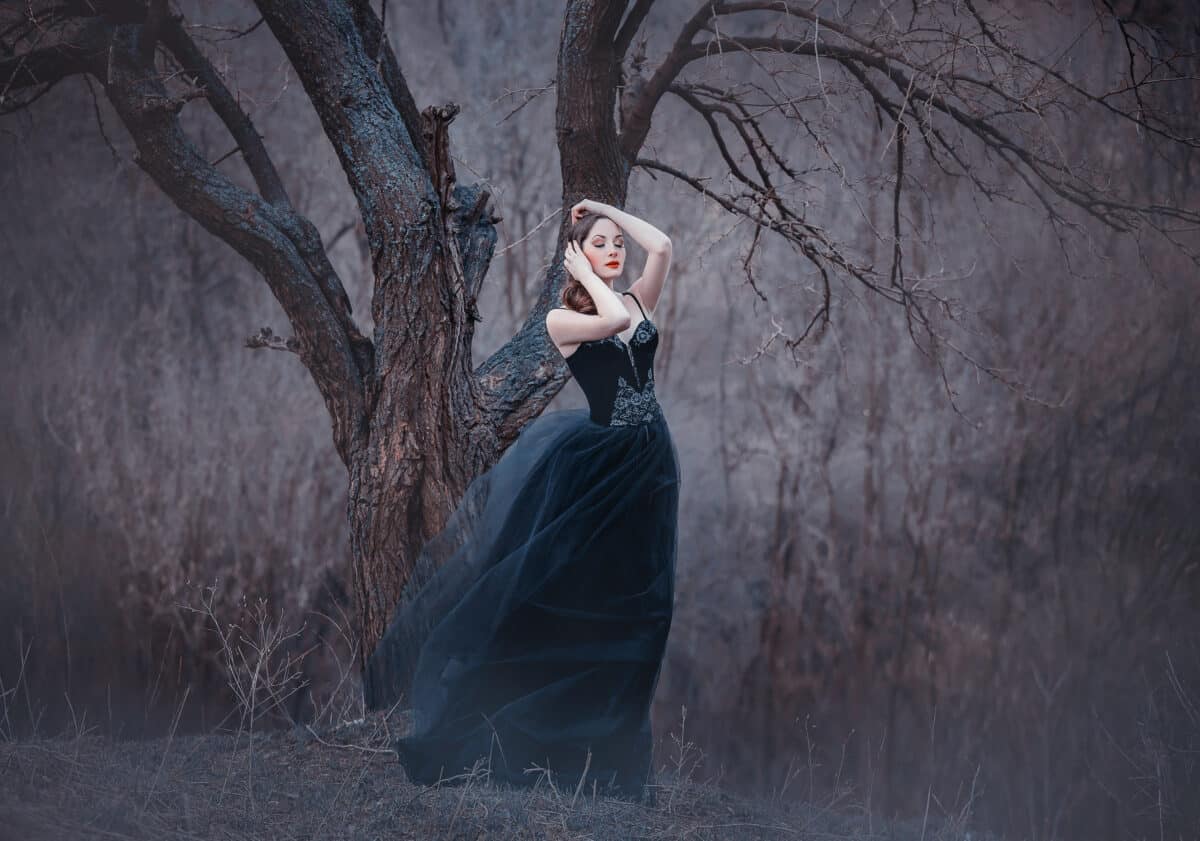
“Forget Thee” by John Moultrie
“Forget thee?” If to dream by night,
And muse on thee by day,
If all the worship deep and wild
A poet’s heart can pay,
If prayers in absence breathed for thee
To Heaven’s protecting power,
If wingéd thoughts that flit to thee, —
A thousand in an hour,
If busy Fancy blending thee
With all my future lot,
If this thou call’st “forgetting,”
Thou, indeed, shall be forgot!
“Forget thee?” Bid the forest-birds
Forget their sweetest tune;
“Forget thee?” Bid the sea forget
To swell beneath the moon,
Bid the thirsty flowers forget to drink
The eve’s refreshing dew ;
Thyself forget thine own “dear land,”
And its “mountains wild and blue,”
Forget each old familiar face,
Each long-remembered spot,
When these things are forgot by thee,
Then thou shalt be forgot!
Keep, if thou wilt, thy maiden peace,
Still calm and fancy-free,
For God forbid thy gladsome heart
Should grow less glad for me;
Yet, while that heart is still unwon,
Oh, bid not mine to rove,
But let it nurse its humble faith,
And uncomplaining love;
If these, preserved for patient years,
At last avail me not,
Forget me then; but ne’er believe
That thou canst be forgot!
“Tell Him I Love Him Yet” by Winthrop Mackworth Praed
Tell him I love him yet, as in that joyous time;
Tell him I ne’er forget, though memory now be crime;
Tell him, when sad moonlight is over earth and sea,
I dream of him by night, he must not dream of me!
Tell him to go where Fame looks proudly on the brave;
Tell him to win a name by deeds on land and wave;
Green, green upon his brow the laurel-wreath shall be;
Although the laurel now may not be shared with me.
Tell him to smile again in pleasure’s dazzling throng,
To wear another’s chain, to praise another’s song;
Before the loveliest there, I’d have him bend the knee,
And breathe to her the prayer he used to breathe to me.
And tell him, day by day life looks to me more dim;
I falter when I pray, although I pray for him.
And bid him, when I die, come to our favorite tree;
I shall not hear him sigh, —then let him sigh for me!
“The Manly Heart” by George Wither
Shall I, wasting in despair,
Die because a woman’s fair?
Or make pale my cheeks with care
‘Cause another’s rosy are?
Be she fairer than the day,
Or the flow’ry meads in May,
If she be not so to me,
What care I how fair she be?
‘Cause her fortune seems too high,
Shall I play the fool and die?
Those that bear a noble mind,
Where they want of riches find,
Think what with them they would do
That without them dare to woo;
And unless that mind I see,
What care I how great she be?
Great or good, or kind or fair,
I will ne’er the more despair,
If she love me, this believe,
I will die ere she shall grieve;
If she slight me when I woo,
I can scorn and let her go;
If she be not fit for me,
What care I for whom she be?
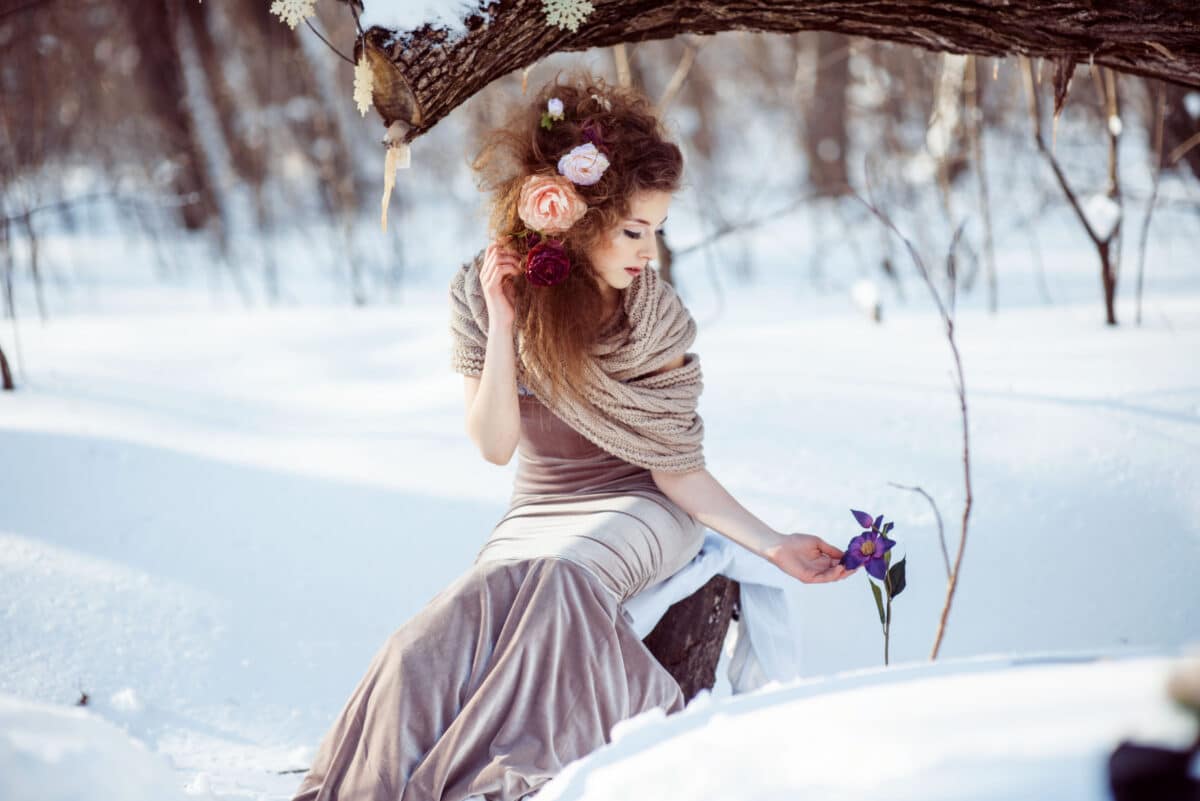
“A Nymph’s Passion” by Ben Jonson
I love, and he loves me again,
Yet dare I not tell who;
For if the nymphs should know my swain,
I fear they’d love him too;
Yet if it be not known,
The pleasure is as good as none,
For that’s a narrow joy is but our own.
I’ll tell, that if they be not glad,
They yet may envy me;
But then if I grow jealous mad,
And of them pitied be,
It were a plague ‘bove scorn,
And yet it cannot be forlorn,
Unless my heart would as my thought be torn.
He is, if they can find him, fair,
And fresh and fragrant too,
As summer’s sky, or purged air,
And looks as lilies do
That are this morning blown;
Yet, yet I doubt he is not known,
And fear much more, that more of him be
shown.
But he hath eyes so round and bright,
As make away my doubt,
Where Love may all his torches light
Though Hate had put them out;
But then to increase my fears,
What nymph so’er his voice but hears,
Will be my rival, though she have but ears.
I’ll tell no more, and yet I love,
And he loves me; yet no
One unbecoming thought doth move
From either heart I know;
But so exempt from blame,
As it would be to each a fame,
If love or fear would let me tell his name.
“Sonnet 20” by William Shakespeare
A woman’s face with nature’s own hand painted,
Hast thou, the master mistress of my passion;
A woman’s gentle heart, but not acquainted
With shifting change, as is false women’s fashion:
An eye more bright than theirs, less false in rolling,
Gilding the object whereupon it gazeth;
A man in hue all ‘hues’ in his controlling,
Which steals men’s eyes and women’s souls amazeth.
And for a woman wert thou first created;
Till Nature, as she wrought thee, fell a-doting,
And by addition me of thee defeated,
By adding one thing to my purpose nothing.
But since she prick’d thee out for women’s pleasure,
Mine be thy love and thy love’s use their treasure.
“Heart, We Will Forget Him!” by Emily Dickinson
Heart, we will forget him!
You and I, tonight!
You may forget the warmth he gave,
I will forget the light.
When you have done, pray tell me
That I my thoughts may dim;
Haste! lest while you’re lagging.
I may remember him!
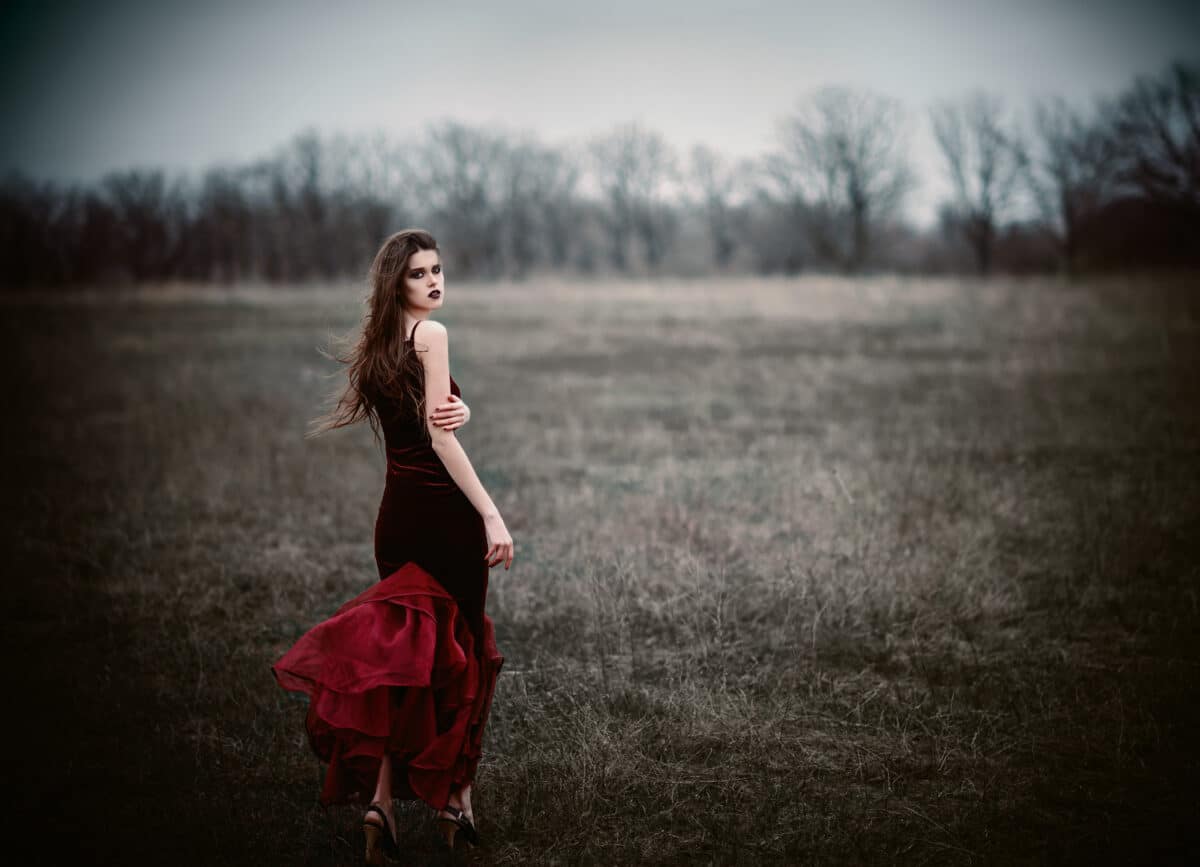
From “The Passionate Pilgrim” by William Shakespeare
When my love swears that she is made of truth,
I do believe her, though I know she lies,
That she might think me some untutor’d youth,
Unskilful in the world’s false forgeries.
Thus vainly thinking that she thinks me young,
Although I know my years be past the best,
I smiling credit her false-speaking tongue,
Outfacing faults in love with love’s ill rest.
But wherefore says my love that she is young?
And wherefore say not I that I am old?
O, love’s best habit is a soothing tongue,
And age, in love, loves not to have years told.
Therefore I’ll lie with love, and love with me,
Since that our faults in love thus smother’d be.
Two loves I have, of comfort and despair,
That like two spirits do suggest me still;
My better angel is a man right fair,
My worser spirit a woman colour’d ill.
To win me soon to hell, my female evil
Tempteth my better angel from my side,
And would corrupt my saint to be a devil,
Wooing his purity with her fair pride.
And whether that my angel be turn’d fiend,
Suspect I may, yet not directly tell:
For being both to me, both to each friend,
I guess one angel in another’s hell;
The truth I shall not know, but live in doubt,
Till my bad angel fire my good one out.
“I Am Not Yours” by Sara Teasdale
I am not yours, not lost in you,
Not lost, although I long to be
Lost as a candle lit at noon,
Lost as a snowflake in the sea.
You love me, and I find you still
A spirit beautiful and bright,
Yet I am I, who long to be
Lost as a light is lost in light.
Oh plunge me deep in love, put out
My senses, leave me deaf and blind,
Swept by the tempest of your love,
A taper in a rushing wind.
“I Shall Forget” by Laurence Hope (adela Florence Cory Nicolson)
Although my life, which thou hast scarred and shaken,
Retains awhile some influence of thee,
As shells, by faithless waves long since forsaken,
Still murmur with the music of the Sea,
I shall forget. Not thine the haunting beauty,
Which, once beheld, for ever holds the heart,
Or, if resigned from stress of Fate or Duty,
Takes part of life away: – the dearer part.
I gave thee love; thou gavest but Desire.
Ah, the delusion of that summer night!
Thy soul vibrated at the rate of Fire;
Mine, with the rhythm of the waves of Light.
It is my love for thee that I regret,
Not thee, thyself, and hence, – I shall forget!
Poems About Secret Love Affairs
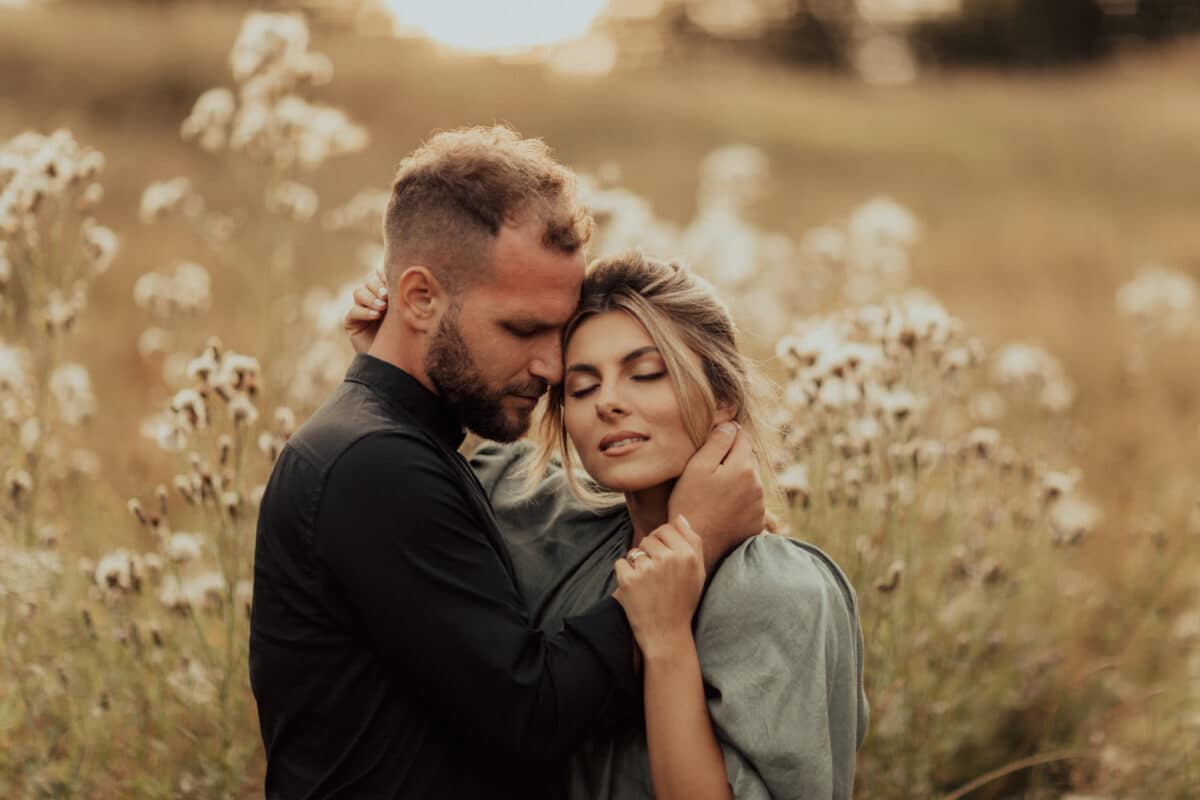
“Secret love” by Bjørnstjerne Bjørnson
He gloomily sat by the wall,
As gaily she danced with them all.
Her laughter’s light spell
On every one fell;
His heartstrings were near unto rending,
But this there was none comprehending.
She fled from the house, when at eve
He came there to take his last leave.
To hide her she crept,
She wept and she wept;
Her life-hope was shattered past mending,
But this there was none comprehending.
Long years dragged but heavily o’er,
And then he came back there once more.
-Her lot was the best,
In peace and at rest;
Her thought was of him at life’s ending,
But this there was none comprehending.
“From the French of Anvers” by Wilfrid Scawen Blunt
My heart has its secret, my soul its mystery,
A love which is eternal begotten in a day.
The ill is long past healing.
Why should I speak to-day?
For none have ears to hear, and, least
of all, she.
Alas, I shall have lived unseen tho’
ever near,
For ever at her side, for ever too alone.
I shall have lived my life unknowing
and unknown,
Asking naught, daring naught,
receiving naught from her.
And she, whom heaven made kind
and chaste and fair,
Shall go undoubting on, the while upon her way
The murmur of my love shall fill the land.
Till, reading here perchance severe and unaware
These lines so full of her, she shall look up and say,
“Who was this woman then?”
and shall not understand.
“Hidden Love” by Sara Teasdale
I hid the love within my heart,
And lit the laughter in my eyes,
That when we meet he may not know
My love that never dies.
But sometimes when he dreams at night
Of fragrant forests green and dim,
It may be that my love crept out
And brought the dream to him.
And sometimes when his heart is sick
And suddenly grows well again,
It may be that my love was there
To free his life of pain.

“The Mistress” by John Wilmot
An age in her embraces passed
Would seem a winter’s day;
When life and light, with envious haste,
Are torn and snatched away.
But, oh! how slowly minutes roll.
When absent from her eyes
That feed my love, which is my soul,
It languishes and dies.
For then no more a soul but shade
It mournfully does move
And haunts my breast, by absence made
The living tomb of love.
You wiser men despise me not,
Whose love-sick fancy raves
On shades of souls and Heaven knows what;
Short ages live in graves.
Whene’er those wounding eyes, so full
Of sweetness, you did see,
Had you not been profoundly dull,
You had gone mad like me.
Nor censure us, you who perceive
My best beloved and me
Sign and lament, complain and grieve;
You think we disagree.
Alas, ’tis sacred jealousy,
Love raised to an extreme;
The only proof ‘twixt her and me,
We love, and do not dream.
Fantastic fancies fondly move
And in frail joys believe,
Taking false pleasure for true love;
But pain can ne’er deceive.
Kind jealous doubts, tormenting fears,
And anxious cares when past,
Prove our heart’s treasure fixed and dear,
And make us blessed at last.
“If You Were Coming In The Fall” by Emily Dickinson
If you were coming in the fall,
I’d brush the summer by
With half a smile and half a spum,
As housewives do a fly.
If I could see you in a year,
I’d wind the months in balls,
And put them each in separate drawers,
Until their time befalls.
If only centuries delayed,
I’d count them on my hand,
Subtracting till my fingers dropped
Into Van Diemen’s land.
If certain, when this life was out,
That yours and mine should be,
I’d toss it yonder like a rind,
And taste eternity.
But now, all ignorant of the length
Of time’s uncertain wing,
It goads me, like the goblin bee,
That will not state its sting.
“Forbidden Love” by Harry
Yes, I would fain forget thee, for my faith
Is pledged to one, whom in the face of heaven
I swore to love. A thousand holy stars
Witnessed the compact, and the soft night breeze
Wafted to heaven the pledge, “I’m thine for ever—
Oh! I would fain forget thee, but thy smile
Hangs o’er me like a spell—each charm of thine,
And every movement of thy angel form
Haunts me like the presence of some lovely
But forbidden spirit. Thou art, indeed,
A joy, lighting the most secret placés
Of my soul—-a thing, binding me to earth—
A voice speaking to me in solitude.
For thee , I would have gladly been bereft,
Ev’n’of my native land ; and on some sbore ,
Where human being ne’er before had trod,
Where the red berry and the mountain stream;
Had been our food, and nature’s simple gifts
Our only wealth, I would have passed my days,
And breathed no thought save those of love and thee.
It must not be—another has my vows—
And young affection’s early, sacred ties,
I swear, shall ne’er be broken.
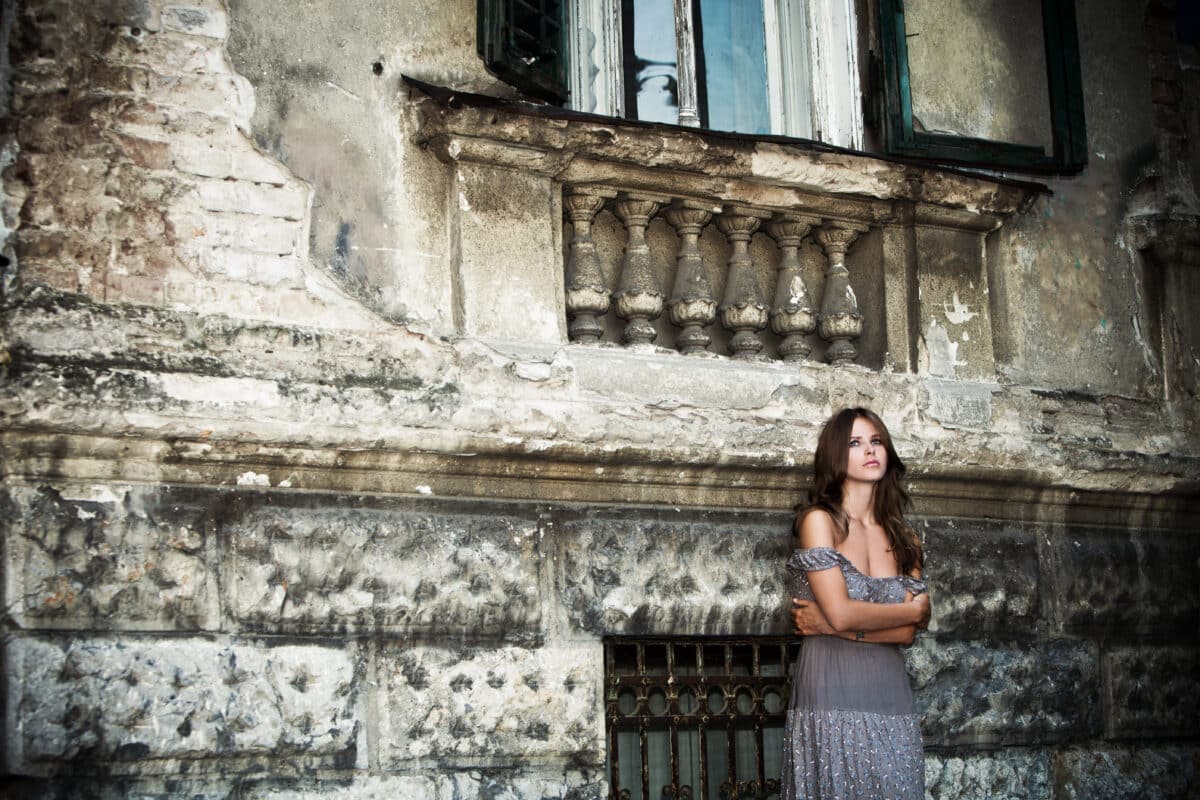
“Meet Me To-night” by John Clare
O meet me to-night by the bright starlight,
Now the pleasant Spring’s begun.
My own dear maid, by the greenwood shade,
In the crimson set of the sun,
Meet me to-night.
The sun he goes down with a ruby crown
To a gold and crimson bed;
And the falling dew, from heaven so blue,
Hangs pearls on Phoebe’s head.
Love, leave the town.
Come thou with me; ‘neath the green-leaf tree
We’ll crop the bonny sweet brere.
O come, dear maid, ‘neath the hazlewood shade,
For love invites us there.
Come then with me.
The owl pops, scarce seen, from the ivy green,
With his spectacles on I ween:
See the moon’s above and the stars twinkle, love;
Better time was never seen.
O come, my queen.
The fox he stops, and down he drops
His head beneath the grass.
The birds are gone; we’re all alone;
O come, my bonny lass.
Come, O come!
“To Lesbia, I” by Gaius Valerius Catullus (George Lamb, Translator)
Love, my Lesbia, while we live,
Value all the cross advice
That the surly greybeards give
At a single farthing’s price.
Suns that set again may rise;
We, when once our fleeting light,
Once our day in darkness dies,
Sleep in one eternal night.
Give me kisses thousand-fold,
Add to them a hundred more;
Other thousands still be told
Others hundreds o’er and o’er.
But, with thousands when we burn,
Mix, confuse the sums at last,
That we may not blushing learn
All that have between us past.
None shall know to what amount
Envy’s due for so much bliss;
None—for none shall ever count
All the kisses we will kiss.
“The Rendezvous” by Gaius Valerius Catullus
My Hypsithilla, charming fair,
My life, my soul, ah! hear my prayer:
Thy grateful summons quickly send,
And bless at noon, with joy, thy friend.
And if my fair one will comply,
And not her sighing swain deny,
Take care the door be then unbarr’d,
And let no spy be on the guard.
And thou, the aim of my desire,
Attend at home my amorous fire.
Prepare thy bosom to receive
All that so much love can give:
Prepare to meet repeated joy,
Continued bliss without alloy;
Dissolving still in thy dear arms,
Still raised by thy reviving charms,
To onsets fresh of sprightly pleasure,
Tumultuous joy beyond all measure.
But dally not with my desire,
Nor quash with thy delays my fire.
Bursting with love upon my couch I lie,
Forestalling with desire the distant joy.
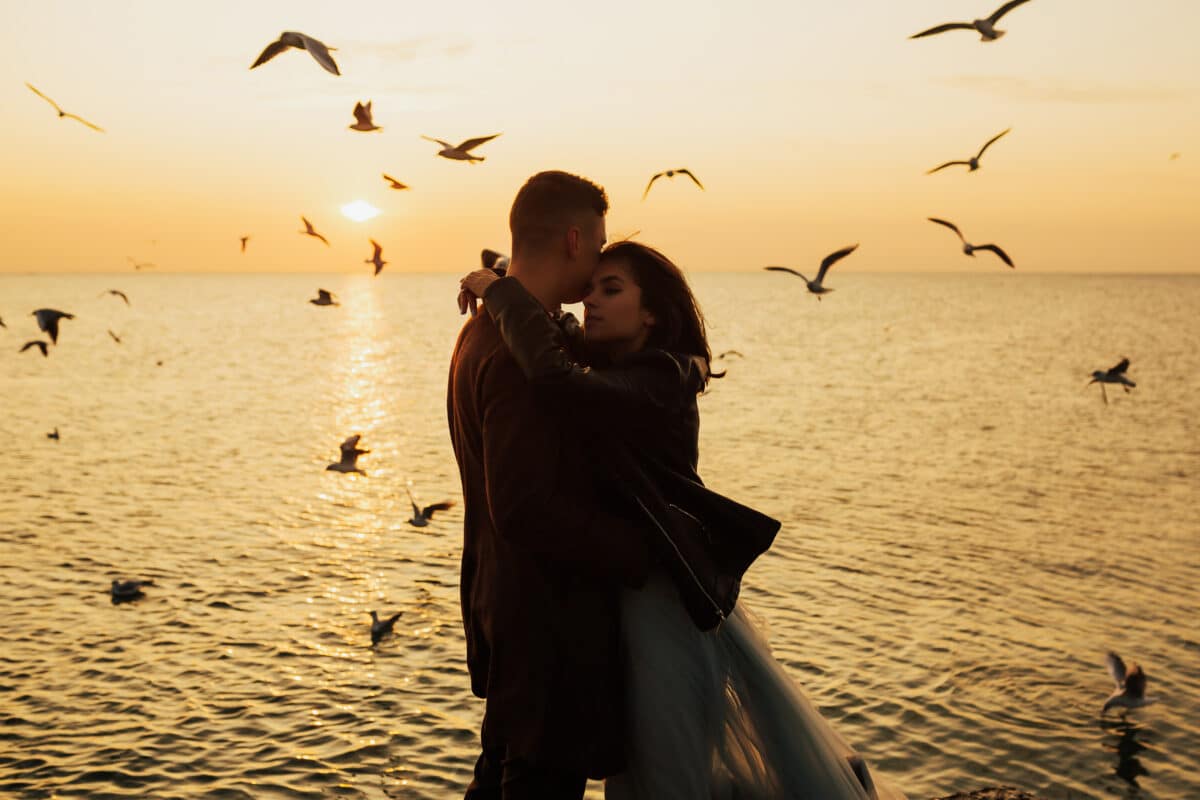
“Meeting At Night” by Robert Browning
I
The grey sea and the long black land;
And the yellow half-moon large and low;
And the startled little waves that leap
In fiery ringlets from their sleep,
As I gain the cove with pushing prow,
And quench its speed i’ the slushy sand.
II
Then a mile of warm sea-scented beach;
Three fields to cross till a farm appears;
A tap at the pane, the quick sharp scratch
And blue spurt of a lighted match,
And a voice less loud, thro’ its joys and fears,
Than the two hearts beating each to each!
“Meeting And Parting” by Madison Julius Cawein
I.
When from the tower, like some sweet flower,
The bell drops petals of the hour,
That says the world is homing,
My heart puts off its garb of care
And clothes itself in gold and vair,
And hurries forth to meet her there
Within the purple gloaming.
It’s Oh! how slow the hours go,
How dull the moments move!
Till soft and clear the bells I hear,
That say, like music, in my ear,
“Go meet the one you love.”
II.
When curved and white, a bugle bright,
The moon blows glamour through the night,
That sets the world a-dreaming,
My heart, where gladness late was guest,
Puts off its joy, as to my breast
At parting her dear form is pressed,
Within the moon’s faint gleaming.
It’s Oh! how fast the hours passed!
They were not slow enough!
Too soon, too soon, the sinking moon
Says to my soul, like some sad tune,
“Come! part from her you love.”
“To His Coy Mistress” by Andrew Marvell
Had we but world enough, and time,
This coyness, Lady, were no crime.
We would sit down and think which way
To walk and pass our long love’s day.
Thou by the Indian Ganges’ side
Shouldst rubies find: I by the tide
Of Humber would complain. I would
Love you ten years before the Flood,
And you should, if you please, refuse
Till the conversion of the Jews.
My vegetable love should grow
Vaster than empires, and more slow;
An hundred years should go to praise
Thine eyes and on thy forehead gaze;
Two hundred to adore each breast;
But thirty thousand to the rest;
An age at least to every part,
And the last age should show your heart;
For, Lady, you deserve this state,
Nor would I love at lower rate.
But at my back I always hear
Time’s wingèd chariot hurrying near;
And yonder all before us lie
Deserts of vast eternity.
Thy beauty shall no more be found,
Nor, in thy marble vault, shall sound
My echoing song: then worms shall try
That long preserved virginity,
And your quaint honour turn to dust,
And into ashes all my lust:
The grave’s a fine and private place,
But none, I think, do there embrace.
Now therefore, while the youthful hue
Sits on thy skin like morning dew,
And while thy willing soul transpires
At every pore with instant fires,
Now let us sport us while we may,
And now, like amorous birds of prey,
Rather at once our time devour
Than languish in his slow-chapt power.
Let us roll all our strength and all
Our sweetness up into one ball,
And tear our pleasures with rough strife
Thorough the iron gates of life:
Thus, though we cannot make our sun
Stand still, yet we will make him run.

“What My Lover Said” by H. G.
By the merest chance, in the twilight gloom
In the orchard path he met me
In the tall, wet grass, with its faint perfume
And I tried to pass, but he made no room.
Oh, I tried, but he would not let me.
So I stood and blushed till the grass grew red,
With my face bent down above it ;
While he took my hand, as he whisp’ring said—
(How the clover lifted each pink, sweet head,
To listen to all that my lover said !
Oh, the clover in bloom-I love it !)
In the high wet grass went the path to hide,
And the low wet leaves hung over ;
But I could not pass upon either side ,
For I found myself, when I vainly tried,
In the arms of my steadfast lover ;
And he held me there, and he raised my head,
While he closed the path before me ;
And he looked down into my eyes and said—
(How the leaves bent down from the boughs o’erhead
To listen to all that my lover said!
Oh, the leaves hanging lowly o’er me!)
Had he moved aside but a little way,
I could surely then have passed him;
And he knew I never could wish to stay,
And would not have heard what he had to say,
Could I only aside have cast him.
It was almost dark, and the moments sped,
And the searching night wind found us;
But he drew me nearer, and softly said
(How the pure, sweet wind grew still instead,
To listen to all that my lover said!
Oh, the whispering wind around us!)
I am sure he knew, when he held me fast,
That I must be all unwilling,
For I tried to go, and I would have passed,
As the night was come with its dew at last,
And the sky with its stars was filling ;
But he clasped me close when I would have fled,
And he made me hear his story;
And his soul came out from his lips and said—
(How the stars crept out, where the white moon
led, To listen to all that my lover said !
Oh, the moon and the stars in glory!)
I know that the grass and the leaves will not tell,
And I’m sure that the wind—precious rover—
Will carry his secret so safely and well
That no being shall ever discover
One word of the many that rapidly fell
From the eager lips of my lover.
And the moon and the stars that looked over
Shall never reveal what a fairy-like spell
They wove round about us that night in the dell,
In the path through the dew-laden clover;
Nor echo the whispers that made my heart swell
As they fell from the lips of my lover.
“You Kissed Me” by Josie Hunt
You kissed me!—my head had dropped low on your breast,
With a feeling of shelter and infinite rest,
While the holy emotions my tongue dare not speak
Flashed up, like a flame, from my heart to my cheek.
Your arms held me fast—Oh, your arms were so bold—
Heart responded to heart in that passionate hold;
Your glances seemed drawing my soul through mine eyes,
As the sun draws the mist from the sea to the skies;
And your lips clung to mine, till I prayed in my bliss
They might never unclasp in that rapturous kiss.
You kissed me!—my heart, and my breast, and ay will,
In delirious joy for a moment stood still;
Life had for me then no temptations or charms,
No vista of pleasure outside of your arms;
And were I this instant an angel possessed
Of the glory and peace that are given the blest,
I would fling my white robes unrepiningly down,
And take from my forehead its beautiful crown,
To nestle once more in the haven of rest,
With your lips upon mine, and my head on your breast.
You kissed me!—my soul, in a bliss so divine,
Reeled and swooned like a foolish man drunken with wine ;
And I thought ‘ twere delicious to die then, if death
Would come while my lips were still moist with your breath ;
“Twere delicious to die, if my heart might grow cold
While your arms wrapt me close in that passion ate hold.
And these are the questions I ask day and night:
Must my life taste but one such exquisite de light?
Would you care if your breast were my shelter as then?
And if you were here, would you kiss me again?
“Song” by Gerald Griffin
A place in thy memory, dearest,
Is all that I claim,
So pause and look back when thou hearest
The sound of my name.
Another may woo thee nearer,
Another may win and wear,
I care not though he be dearer,
If I am remembered there.
Could I be thy true lover, dearest,
Couldst thou smile on me,
I would be the fondest and nearest
That ever loved thee.
But a cloud o’er my pathway is glooming
Which never must break upon thine,
And Heaven which made thee all blooming
Ne’er made thee to wither on mine.
Remember me not as a lover
Whose fond hopes are crossed,
Whose bosom can never recover
The light it has lost;
As the young bride remembers the mother
She loves, yet never may see,
As a sister remembers a brother,
Oh, dearest, remember me.
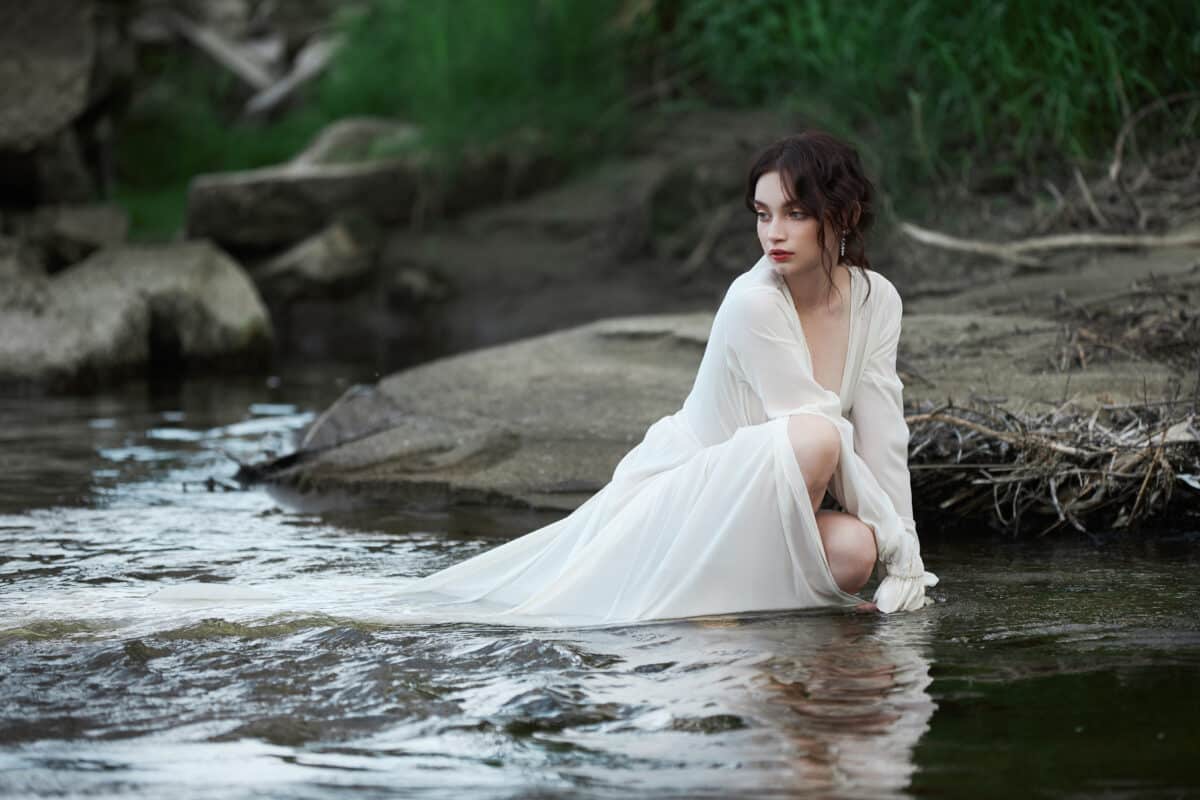
“I Wandered by the Brook-Side” by Lord Houghton
I wandered by the brook-side,
I wandered by the rill,
I could not hear the brook flow,
The noisy wheel was still.
There was no burr of grasshopper,
No chirp of any bird ;
But the beating of my own heart,
Was all the sound I heard.
I sat beneath the elm-tree,
I watched the long, long shade,
And as it grew still longer,
I did not feel afraid ;
For I listened for a foot fall,
I listened for a word ;
But the beating of my own heart,
Was all the sound I heard.
He came not-no, he came not,
The night came on alone.
The little stars sat, one by one,
Each on his golden throne ;
The evening air passed by my cheek,
The leaves above were stirred ;
But the beating of my own heart,
Was all the sound I heard.
Fast, silent tears were flowing,
When something stood behind,
A hand was on my shoulder,
I knew its touch was kind ;
It drew me nearer, nearer,
We did not speak one word ;
For the beating of our own hearts,
Was all the sound we heard.
“Was It For This?” by Philip Bourke Marston
Was it for this we met three years ago:
Took hands, spake low, sat side by side, and heard
The sleeping trees beneath us touched and stirred
By some mild twilight wind as soft as snow,
And with the sun’s last kisses still aglow?
Was it for this the end was so deferred?
For this thy lips at length let through the word
That saved my soul, as all Love’s angels know?
Was it for this, that sweet word being said,
We kissed and clung together in our bliss
And walked within Love’s sunlight and Love’s shade?
Was it for this-to dwell henceforth apart,
One housed with death, and one with beggared heart?
Nay, surely, love, it was for more than this.
“Rose Kissed Me To-day” by Austin Dobson
Rose kissed me to-day,
Will she kiss me to-morrow?
Let it be as it may,
Rose kissed me to-day.
But the pleasure gives way
To a savor of sorrow.
Rose kissed me to-day—
Will she kiss me to-morrow?
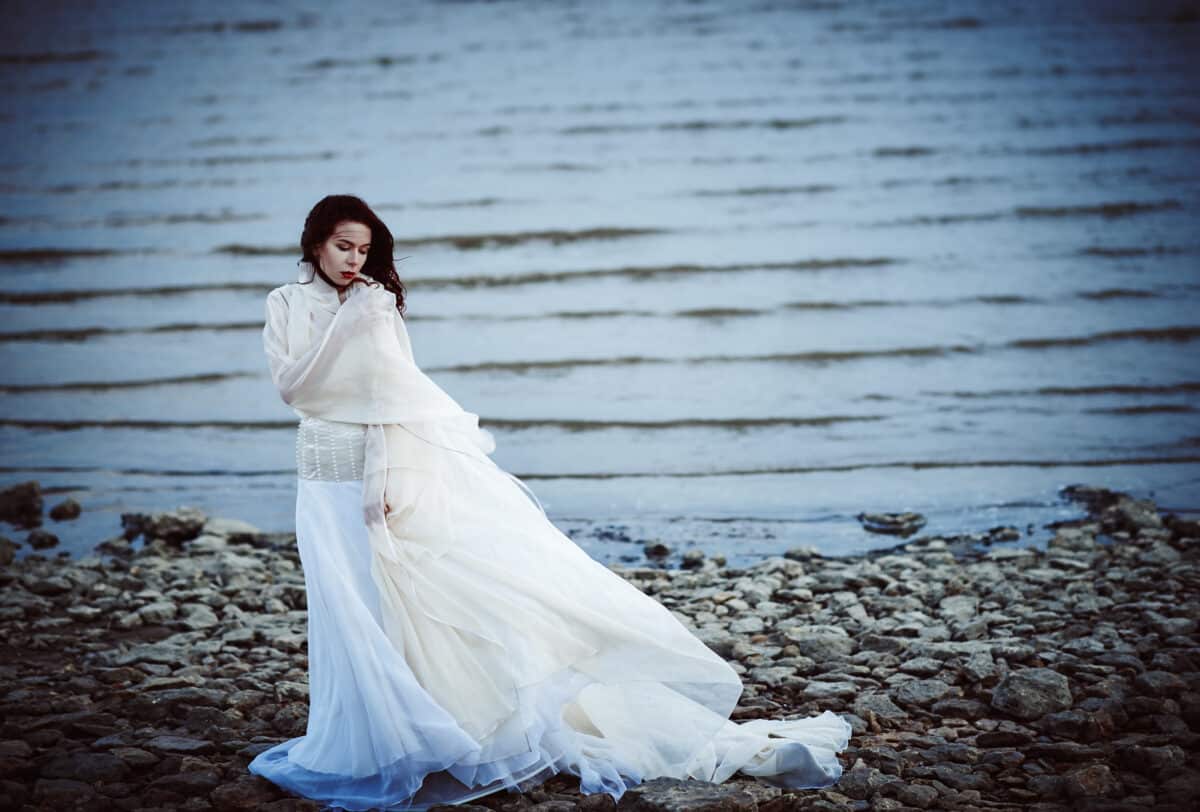
“I Waited Till the Twilight” by Charles Swain
I waited till the twilight,
And yet he did not come ;
I strayed along the brookside,
And slowly wandered home :
When who should come behind me,
But him I would have chid ;
He said he came to find me
Do you really think he did?
He said since last we parted,
He’d thought of naught so sweet,
As of this very moment,
The moment we should meet.
He showed me where, half-shaded,
A cottage home lay hid ;
He said for me he’d made it
Do you really think he did?
He said when first he saw me,
Life seemed at once divine,
Each night he dreamed of angels,
And every face was mine ;
Sometimes, a voice in sleeping,
Would all his hopes forbid ;
And then he’d waken weeping
Do you really think he did?
“A Kiss in the Rain” by Anonymous
One stormy morn I chanced to meet
A lassie in the town ;
Her locks were like the ripened wheat,
Her laughing eyes were brown.
I watched her, as she tripped along,
Till madness filled my brain,
And then-and then-I knew ‘ twas wrong
I kissed her in the rain.
With rain-drops shining on her cheek,
Like dew-drops on a rose,
The little lassie strove to speak,
My boldness to oppose ;
She strove in vain, and, quivering,
Her finger stole in mine ;
And then the birds began to sing,
The sun began to shine.
Oh, let the clouds grow dark above,
My heart is light below ;
‘Tis always summer when we love,
However winds may blow ;
And I’m proud as any prince,
All honors I disdain ;
She says I am her rain-beau since
I kissed her in the rain.
“Thy Hands Will Draw Me In” by Anonymous
Once in the twilight of a wintry day,
One passed me silent, struggling on his way,
With head bowed low and hands that burdens bore,
And saw not how a little space before,
A woman watched his coming, where the light
Poured a glad welcome through a window bright,
Set thick with flowers that showed no fairer bloom
Than her sweet face, turned outward to the gloom.
Yet when his foot, with quick impatient stride,
But touched the step, the door swung open wide ;
Soft hands reached swiftly out, with eager hold,
And drew the dear one in from storm and cold.
O love! whose eyes, from some celestial height,
Behold me toiling burdened through the night,
Sender of every blast at which I cower,
Yet smiling still, to know how brief the hour,
Keeping within thy radiant, love-lit home,
Some glad surprise to whisper when I come
“Tis but a breath till I the door shall win,
And thy dear hands will softly draw me in.

“Thy Name I Murmur Softly” by Anonymous
Thy name I murmur softly,
When night winds sigh,
When silent stars are keeping
Their watch on high.
To listening ears I breathe not
Thy gentle name,
Nor say that in my bosom
Glows love’s wild flame.
My lips betray, reveal not,
Thou’rt dear to me;
None see these tears of anguish
I shed for thee.
“The Parting” by Goethe
Let mine eyes the farewell speak, love,
For my lips they never can !
Though my heavy heart may break, love,
I must bear it as a man.
Sad becomes in such an hour
Sweetest pledge and accents bland,
Cold thy kiss, and feeble power
In the pressure of thy hand.
Other times a kiss was rapture,
If our lips a moment met,
A rejoicing like the capture
Of the rare March violet.
Now no more of garlands any,
No more roses, give I thee,
Spring it is, my darling Fanny,
But sad autumn unto me!
“Love on Deck” by George Barlow
“I never loved you much, ” she said,
“But I wanted to pass the time.
The hours pass slow on a ship, you know,
In a lazy, tropical clime.
Have I hurt you much ? Forgive me, then,
If I own that I was wrong.
Cure the smart, and heal your heart,
By writing it all in a song. “
The waves flowed free, and the waves flowed
wide,
As they sat and whispered side by side.
“I never cared much for you,” he said,
“But I wanted a subject fit.
I’d verses to make, and I thought I could take
Your heart and model from it.
Have I pained you much ? Forgive me, dear.
A ship is a dreary place ;
It is wrong to flirt, but you are n’t much hurt,
And you have a lovely face ! “
The waves flowed free, and the waves flowed
strong,
And the good ship bore them both along.
Each looked at each. They did not smile :
The tears were in either’s eyes.
And the cliffs of England rose the while
From the waves, a white surprise.
Hand sought for hand, – ” Shall we gravely end
What first was a freak of the heart?
Shall we meet once more on the English shore,
But this time never to part ? “
The cliffs rose white from the sunny seas,
And church-bells sounded on the breeze.
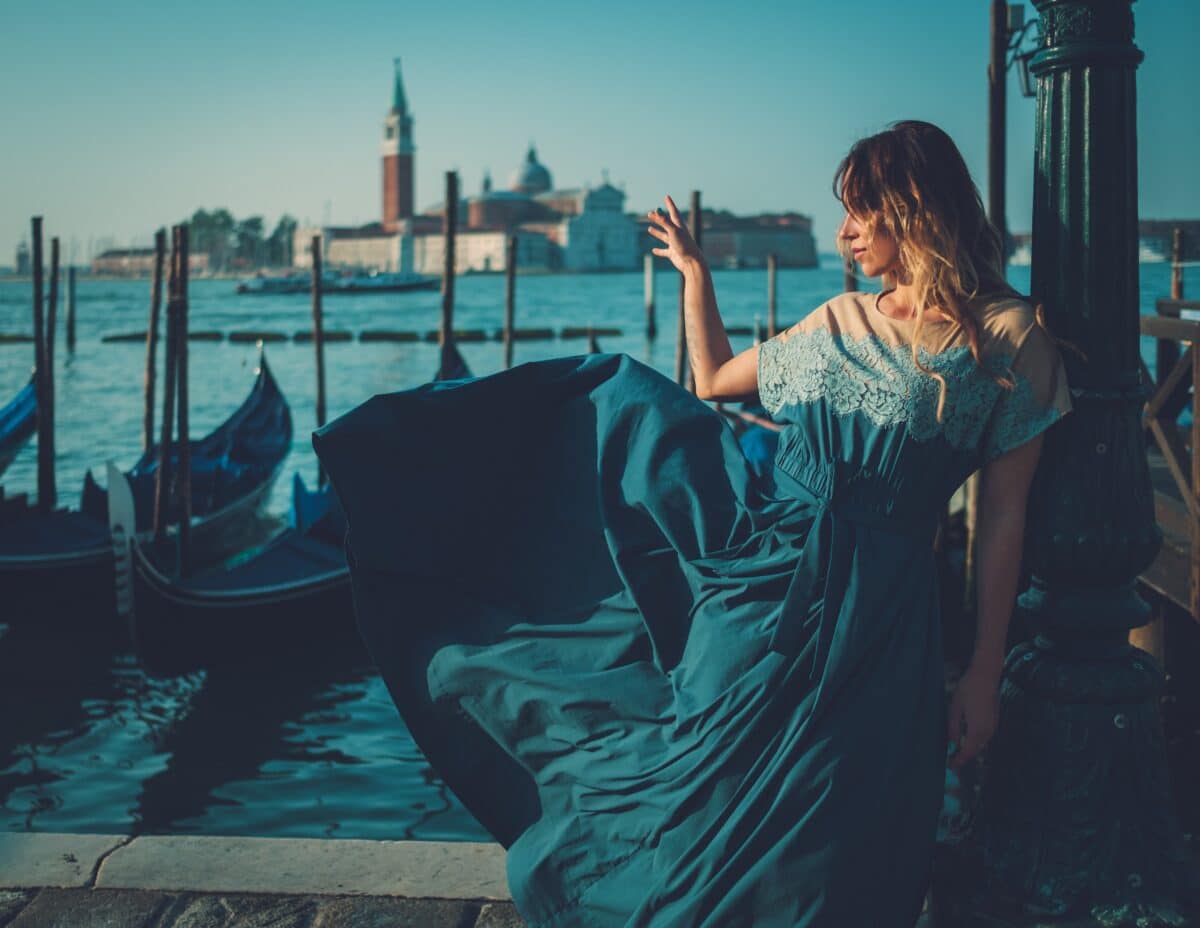
“In a Gondola” by Joaquin Miller
I.
‘T was night in Venice.
Then down to the tide,
Where a tall and shadowy gondolier
Leaned on his oar, like a lifted spear:
‘Twas night in Venice. Then side by side
We sat in his boat. Then oar a-trip
On the black boat’s keel, then dip and dip:
These boatmen should build their boats more wide,
For we were together and side by side.
II.
The sea it was level as seas of light,
As still as the light ere a hand was laid
To the making of lands, or the seas were made.
‘T was fond as a bride on her bridal night,
When a great love swells in her soul like a sea,
And makes her but less than divinity.
‘Twas night, the soul of the day I wis:
A woman’s face hiding from her first kiss.
III.
‘Twas night in Venice. On o’er the tide
These boats they are narrow as they can be;
These crafts they are narrow enough, and we,
To balance the boat, sat side by side
Out under the arch of the Bridge of Sighs,
On under the arch of the star-sown skies;
We two were together on the Adrian Sea, —
The one fair woman of the world to me.
IV.
These narrow-built boats, they rock when at sea,
And they make one afraid. So she leaned to me;
And that is the reason alone there fell
Such golden folds of abundant hair
Down over my shoulder, as we sat there.
These boatmen should build their boats more wide,
Wider for lovers : as wide – ah, well!
But who is the rascal to kiss and tell?
“Kiss Me Softly” by John Godfrey Saxe
Κiss me softly and speak to me low,
Malice has ever a vigilant ear ;
What if malice were lurking near?
Kiss me, dear !
Kiss me softly and speak to me low.
Kiss me softly and speak to me low,
Envy too has a watchful ear ;
What if envy should chance to hear ?
Kiss me, dear !
Kiss me softly and speak to me low.
Kiss me softly and speak to me low, —
Trust me, darling, the time is near
When lovers may love with never a fear, –
Kiss me, dear !
Kiss me softly and speak to me low.
“I Never Loved You More” by Bertolt Brecht
I never loved you more, ma soeur
Than as I walked away from you that evening.
The forest swallowed me, the blue forest, ma soeur
The blue forest and above it pale stars in the west.
I did not laugh, not one little bit, ma soeur
As I playfully walked towards a dark fate –
While the faces behind me
Slowly paled in the evening of the blue forest.
Everything was grand that one night, ma soeur
Never thereafter and never before,
I admit it: I was left with nothing but the big birds
And their hungry cries in the dark evening sky.
Poems About Obsessive Love
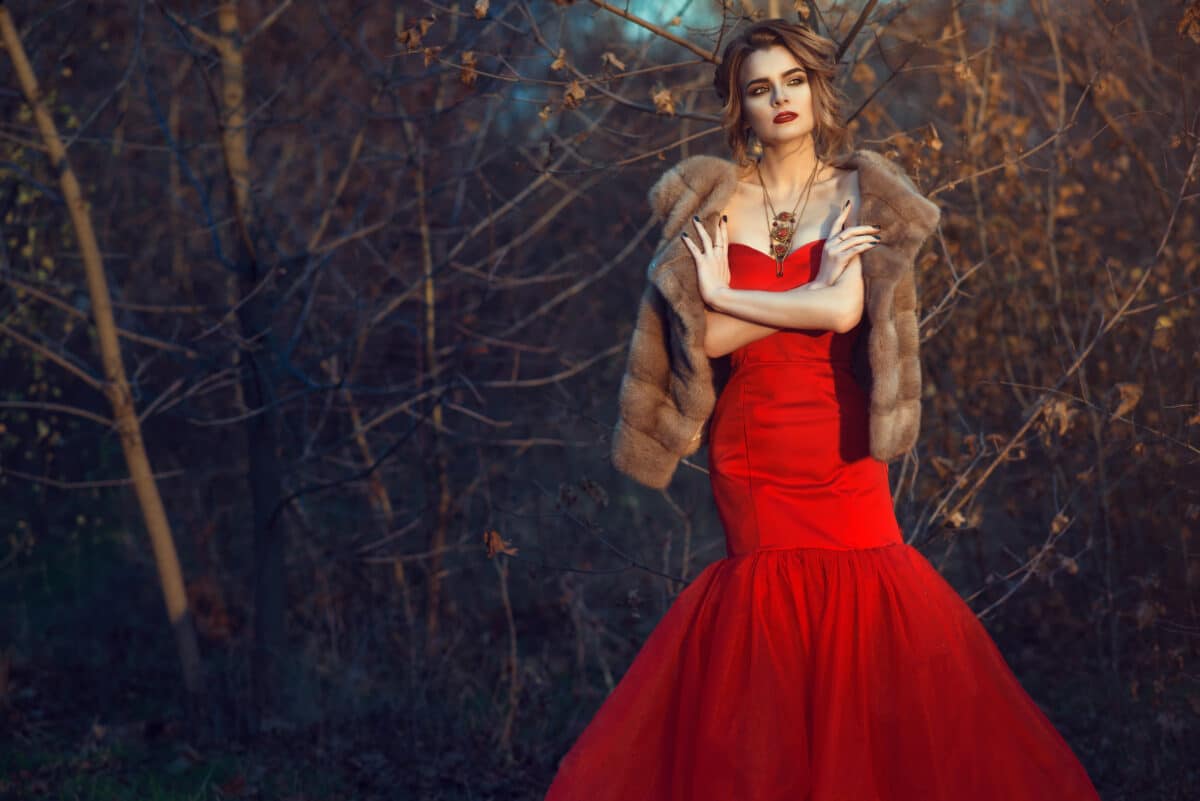
“Annabel Lee” by Edgar Allan Poe
It was many and many a year ago,
In a kingdom by the sea,
That a maiden there lived whom you may know
By the name of ANNABEL LEE;
And this maiden she lived with no other thought
Than to love and be loved by me.
I was a child and she was a child,
In this kingdom by the sea;
But we loved with a love that was more than love,
I and my Annabel Lee;
With a love that the winged seraphs of heaven
Coveted her and me.
And this was the reason that, long ago,
In this kingdom by the sea,
A wind blew out of a cloud, chilling
My beautiful Annabel Lee;
So that her highborn kinsman came
And bore her away from me,
To shut her up in a sepulchre
In this kingdom by the sea.
The angels, not half so happy in heaven,
Went envying her and me,
Yes!, that was the reason (as all men know,
In this kingdom by the sea)
That the wind came out of the cloud by night,
Chilling and killing my Annabel Lee.
But our love it was stronger by far than the love
Of those who were older than we,
Of many far wiser than we,
And neither the angels in heaven above,
Nor the demons down under the sea,
Can ever dissever my soul from the soul
Of the beautiful Annabel Lee.
For the moon never beams without bringing me dreams
Of the beautiful Annabel Lee;
And the stars never rise but I feel the bright eyes
Of the beautiful Annabel Lee;
And so, all the night-tide, I lie down by the side
Of my darling, my darling, my life and my bride,
In the sepulchre there by the sea,
In her tomb by the sounding sea.
“A Valentine” by Edgar Allan Poe
For her this rhyme is penned, whose luminous eyes,
Brightly expressive as the twins of Leda,
Shall find her own sweet name, that nestling lies
Upon the page, enwrapped from every reader.
Search narrowly the lines!, they hold a treasure
Divine, a talisman, an amulet
That must be worn at heart. Search well the measure,
The words, the syllables! Do not forget
The trivialest point, or you may lose your labor
And yet there is in this no Gordian knot
Which one might not undo without a sabre,
If one could merely comprehend the plot.
Enwritten upon the leaf where now are peering
Eyes scintillating soul, there lie perdus
Three eloquent words oft uttered in the hearing
Of poets, by poets, as the name is a poet’s, too,
Its letters, although naturally lying
Like the knight Pinto, Mendez Ferdinando,
Still form a synonym for Truth, Cease trying!
You will not read the riddle, though you do the best you can do.
“The Raven” by Edgar Allan Poe
Once upon a midnight dreary, while I pondered, weak and weary,
Over many a quaint and curious volume of forgotten lore,
While I nodded, nearly napping, suddenly there came a tapping,
As of some one gently rapping, rapping at my chamber door.
“‘Tis some visitor,” I muttered, “tapping at my chamber door,
Only this, and nothing more.”
Ah, distinctly I remember it was in the bleak December,
And each separate dying ember wrought its ghost upon the floor.
Eagerly I wished the morrow;, vainly I had sought to borrow
From my books surcease of sorrow, sorrow for the lost Lenore,
For the rare and radiant maiden whom the angels name Lenore,
Nameless here for evermore.
And the silken sad uncertain rustling of each purple curtain
Thrilled me, filled me with fantastic terrors never felt before;
So that now, to still the beating of my heart, I stood repeating,
“‘Tis some visitor entreating entrance at my chamber door,
Some late visitor entreating entrance at my chamber door;-
This it is, and nothing more.”
Presently my soul grew stronger; hesitating then no longer,
“Sir,” said I, “or Madam, truly your forgiveness I implore;
But the fact is I was napping, and so gently you came rapping,
And so faintly you came tapping, tapping at my chamber door,
That I scarce was sure I heard you”, here I opened wide the door;-
Darkness there, and nothing more.
Deep into that darkness peering, long I stood there wondering, fearing,
Doubting, dreaming dreams no mortals ever dared to dream before;
But the silence was unbroken, and the stillness gave no token,
And the only word there spoken was the whispered word, “Lenore!”
This I whispered, and an echo murmured back the word, “Lenore!”,
Merely this, and nothing more.
Back into the chamber turning, all my soul within me burning,
Soon again I heard a tapping somewhat louder than before.
“Surely,” said I, “surely that is something at my window lattice:
Let me see, then, what thereat is, and this mystery explore,
Let my heart be still a moment and this mystery explore;,
‘Tis the wind and nothing more.”
Open here I flung the shutter, when, with many a flirt and flutter,
In there stepped a stately raven of the saintly days of yore;
Not the least obeisance made he; not a minute stopped or stayed he;
But, with mien of lord or lady, perched above my chamber door,
Perched upon a bust of Pallas just above my chamber door,
Perched, and sat, and nothing more.
Then this ebony bird beguiling my sad fancy into smiling,
By the grave and stern decorum of the countenance it wore.
“Though thy crest be shorn and shaven, thou,” I said, “art sure no craven,
Ghastly grim and ancient raven wandering from the Nightly shore,
Tell me what thy lordly name is on the Night’s Plutonian shore!”
Quoth the Raven, “Nevermore.”
Much I marveled this ungainly fowl to hear discourse so plainly,
Though its answer little meaning, little relevancy bore;
For we cannot help agreeing that no living human being
Ever yet was blest with seeing bird above his chamber door,
Bird or beast upon the sculptured bust above his chamber door,
With such name as “Nevermore.”
But the raven, sitting lonely on the placid bust, spoke only
That one word, as if his soul in that one word he did outpour.
Nothing further then he uttered, not a feather then he fluttered,
Till I scarcely more than muttered, “other friends have flown before,
On the morrow he will leave me, as my hopes have flown before.”
Then the bird said, “Nevermore.”
Startled at the stillness broken by reply so aptly spoken,
“Doubtless,” said I, “what it utters is its only stock and store,
Caught from some unhappy master whom unmerciful Disaster
Followed fast and followed faster till his songs one burden bore,
Till the dirges of his Hope that melancholy burden bore
Of ‘Never, nevermore’.”
But the Raven still beguiling all my fancy into smiling,
Straight I wheeled a cushioned seat in front of bird, and bust and door;
Then upon the velvet sinking, I betook myself to linking
Fancy unto fancy, thinking what this ominous bird of yore,
What this grim, ungainly, ghastly, gaunt and ominous bird of yore
Meant in croaking “Nevermore.”
This I sat engaged in guessing, but no syllable expressing
To the fowl whose fiery eyes now burned into my bosom’s core;
This and more I sat divining, with my head at ease reclining
On the cushion’s velvet lining that the lamplight gloated o’er,
But whose velvet violet lining with the lamplight gloating o’er,
She shall press, ah, nevermore!
Then methought the air grew denser, perfumed from an unseen censer
Swung by Seraphim whose footfalls tinkled on the tufted floor.
“Wretch,” I cried, “thy God hath lent thee, by these angels he hath sent thee
Respite, respite and nepenthe, from thy memories of Lenore!
Quaff, oh quaff this kind nepenthe and forget this lost Lenore!”
Quoth the Raven, “Nevermore.”
“Prophet!” said I, “thing of evil!, prophet still, if bird or devil!,
Whether Tempter sent, or whether tempest tossed thee here ashore,
Desolate yet all undaunted, on this desert land enchanted,
On this home by horror haunted, tell me truly, I implore,
Is there, is there balm in Gilead?, tell me, tell me, I implore!”
Quoth the Raven, “Nevermore.”
“Prophet!” said I, “thing of evil, prophet still, if bird or devil!
By that Heaven that bends above us, by that God we both adore,
Tell this soul with sorrow laden if, within the distant Aidenn,
It shall clasp a sainted maiden whom the angels name Lenore,
Clasp a rare and radiant maiden whom the angels name Lenore.”
Quoth the Raven, “Nevermore.”
“Be that word our sign in parting, bird or fiend,” I shrieked, upstarting,
“Get thee back into the tempest and the Night’s Plutonian shore!
Leave no black plume as a token of that lie thy soul hath spoken!
Leave my loneliness unbroken!, quit the bust above my door!
Take thy beak from out my heart, and take thy form from off my door!”
Quoth the Raven, “Nevermore.”
And the Raven, never flitting, still is sitting, still is sitting
On the pallid bust of Pallas just above my chamber door;
And his eyes have all the seeming of a demon’s that is dreaming,
And the lamplight o’er him streaming throws his shadow on the floor;
And my soul from out that shadow that lies floating on the floor
Shall be lifted, nevermore!
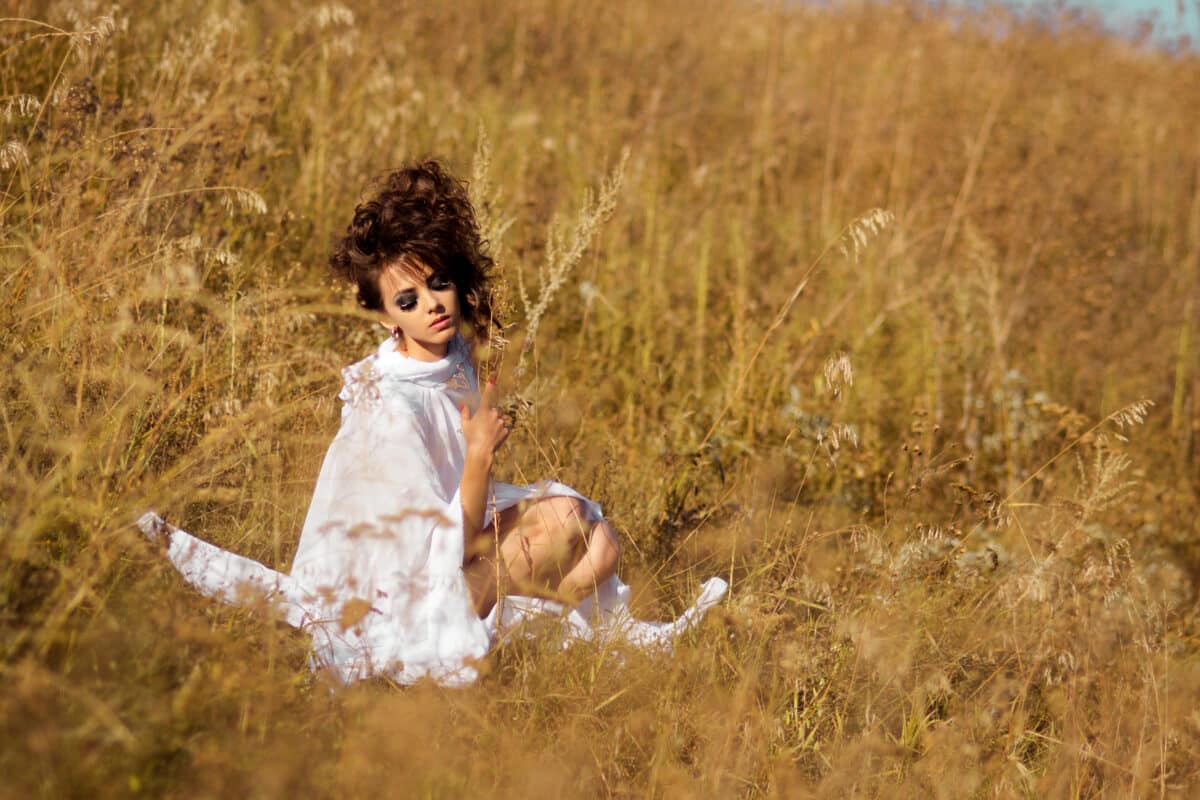
“The Dream” by Edna St. Vincent Millay
Love, if I weep it will not matter,
And if you laugh I shall not care;
Foolish am I to think about it,
But it is good to feel you there.
Love, in my sleep I dreamed of waking, —
White and awful the moonlight reached
Over the floor, and somewhere, somewhere,
There was a shutter loose, —it screeched!
Swung in the wind, — and no wind blowing! —
I was afraid, and turned to you,
Put out my hand to you for comfort, —
And you were gone! Cold, cold as dew,
Under my hand the moonlight lay!
Love, if you laugh I shall not care,
But if I weep it will not matter, —
Ah, it is good to feel you there!
“Haunting Eyes” by Caroline Norton
In the hour I first beheld thee,
Soft thy kindly glances fell;
And my heart bowed down before thee,
As beneath a magic spell.
Since that time like some sweet phantom,
In my home thy form doth rise,
And where’er my sad gaze wanders
There I meet thy haunting eyes.
Oh, those eyes ! their lovely shadow
Stole the light of life away,
And my heart in languid dreaming,
Idly pines from day to day.
Vain the evening’s dewy coolness
Vain the calm of midnight skies ;
E’en with darkness closing round me,
Still I see those haunting eyes.
“Maid of Athens” by Lord Byron
Maid of Athens, ere we part,
Give, oh give me back my heart !
Or, since that has left my breast,
Keep it now, and take the rest !
Hear my vow before I go,
My dearest life, I love thee.
By those tresses unconfined,
Wooed by each Aegean wind ;
By those lids whose jetty fringe
Kiss thy soft cheeks’ blooming tinge ;
By those wild eyes like the roe,
My dearest life, I love thee.
By that lip I long to taste ;
By that zone encircled waist ;
By all the token-flowers that tell
What words can never speak so well ;
By love’s alternate joy and woe,
My dearest life, I love thee.
Maid of Athens ! I amgone ;
Think of me sweet ! when alone.
Though I fly to Istambol,
Athens holds my heart and soul ;
Can I cease to love thee? No!
My dearest life, I love thee.
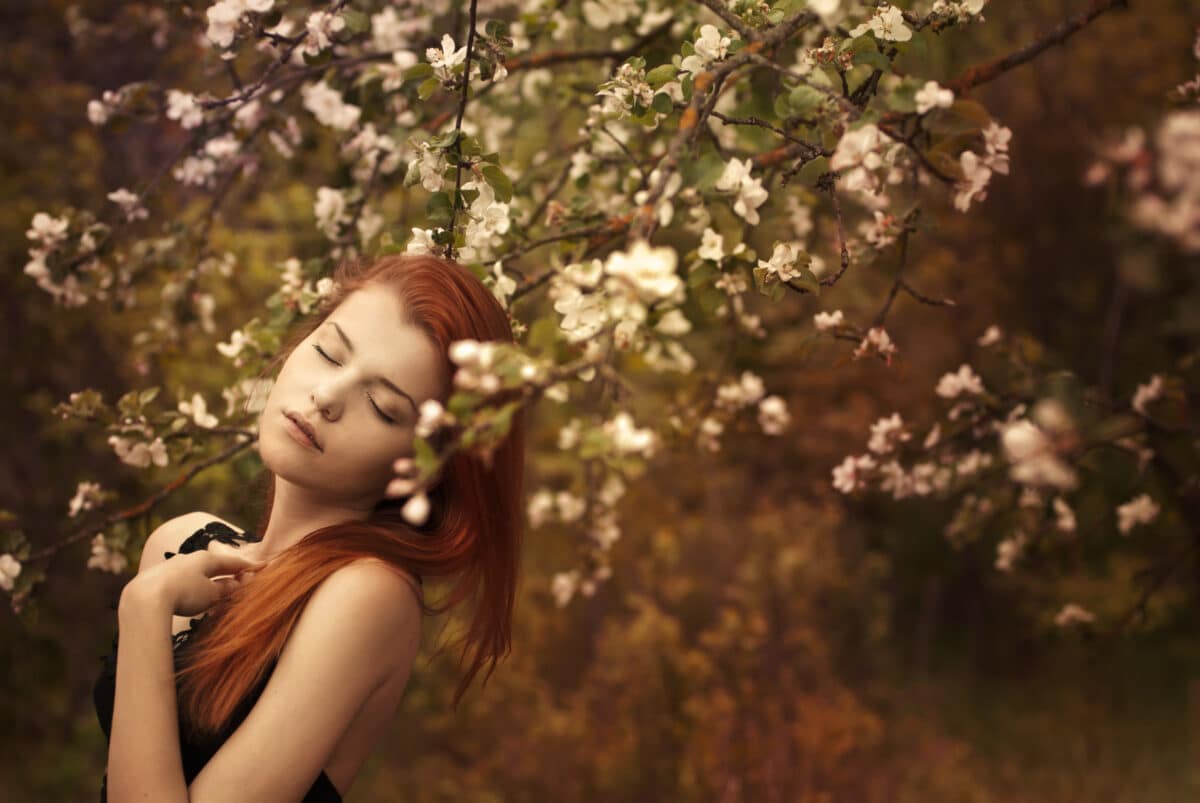
“Come Into the Garden, Maud” by Alfred Tennyson
Come into the garden, Maud,
For the black bat, night, has flown,
Come into the garden, Maud,
I am here at the gate alone;
And the woodbine spices are wafted abroad,
And the musk of the rose is blown.
For a breeze of morning moves,
And the planet of Love is on high,
Beginning to faint in the light that she loves
In a bed of daffodil sky,
To faint in the light of the sun she loves,
To faint in his light, and to die.
All night have the roses heard
The flute, violin, bassoon;
All night has the casement jessamine stirr’d
To the dancers dancing in tune;
Till a silence fell with the waking bird,
And a hush with the setting moon.
I said to the lily, “There is but one
With whom she has heart to be gay.
When will the dancers leave her alone?
She is weary of dance and play.”
Now half to the setting moon are gone,
And half to the rising day;
Low on the sand and loud on the stone
The last wheel echoes away.
I said to the rose, “The brief night goes
In babble and revel and wine.
O young lord-lover, what sighs are those,
For one that will never be thine?
But mine, but mine,” so I sware to the rose,
“For ever and ever, mine.”
And the soul of the rose went into my blood,
As the music clash’d in the hall;
And long by the garden lake I stood,
For I heard your rivulet fall
From the lake to the meadow and on to the wood,
Our wood, that is dearer than all;
From the meadow your walks have left so sweet
That whenever a March-wind sighs
He sets the jewel-print of your feet
In violets blue as your eyes,
To the woody hollows in which we meet
And the valleys of Paradise.
The slender acacia would not shake
One long milk-bloom on the tree;
The white lake-blossom fell into the lake
As the pimpernel dozed on the lea;
But the rose was awake all night for your sake,
Knowing your promise to me;
The lilies and roses were all awake,
They sigh’d for the dawn and thee.
Queen rose of the rosebud garden of girls,
Come hither, the dances are done,
In gloss of satin and glimmer of pearls,
Queen lily and rose in one;
Shine out, little head, sunning over with curls,
To the flowers, and be their sun.
There has fallen a splendid tear
From the passion-flower at the gate.
She is coming, my dove, my dear;
She is coming, my life, my fate;
The red rose cries, “She is near, she is near;”
And the white rose weeps, “She is late;”
The larkspur listens, “I hear, I hear;”
And the lily whispers, “I wait.”
She is coming, my own, my sweet;
Were it ever so airy a tread,
My heart would hear her and beat,
Were it earth in an earthy bed;
My dust would hear her and beat,
Had I lain for a century dead,
Would start and tremble under her feet,
And blossom in purple and red.
“Edward Gray” by Alfred Tennyson
Sweet Emma Moreland, of yonder town,
Met me walking on yonder way,
“And have you lost your heart ?” she said;
“And are you married yet, Edward Gray?”
Sweet Emma Moreland spoke to me:
Bitterly weeping I turned away;
“Sweet Emma Moreland, love no more
Can touch the heart of Edward Gray.
“Ellen Adair she loved me well,
Against her father’s and mother’s will;
To-day I sat for an hour and wept
By Ellen’s grave, on the windy hill.
“Shy she was, and I thought her cold;
Thought her proud, and fled over the sea;
Filled I was with folly and spite,
When Ellen Adair was dying for me.
“Cruel, cruel the words I said!
Cruelly came they back to-day:
‘You’re too slight and fickle,’ I said,
‘To trouble the heart of Edward Gray!’
“There I put my face in the grass
Whispered, ‘ Listen to my despair:
I repent me of all I did:
Speak a little, Ellen Adair!”
“Then I took a pencil, and wrote
On the mossy stone, as I lay,
‘Here lies the body of Ellen Adair;
And here the heart of Edward Gray!’
“Love may come, and love may go,
And fly like a bird, from tree to tree:
But I will love no more, no more,
Till Ellen Adair come back to me.
“Bitterly wept I over the stone:
Bitterly weeping I turned away:
There lies the body of Ellen Adair!
And there the heart of Edward Gray!”
“Too Late” by Mrs. Craik
Could ye come back to me, Douglas, Douglas,
In the old likeness that I knew,
I would be so faithful, so loving, Douglas,
Douglas, Douglas, tender and true.
Never a scornful word should grieve ye,
I’d smile on ye sweet as the angels do :
Sweet as your smile on me shone ever,
Douglas, Douglas, tender and true.
Oh! to call back the days that are not !
My eyes were blinded, your words were few;
Do you know the truth now up in heaven,
Douglas, Douglas, tender and true?
I never was worthy of you, Douglas ;
Not half worthy the like of you ;
Now all men beside seem to me like shadows
I love you, Douglas, tender and true.
Stretch out your hand to me, Douglas, Douglas,
Drop forgiveness from heaven like dew,
As I lay my heart on your dead heart, Douglas,
Douglas, Douglas, tender and true.
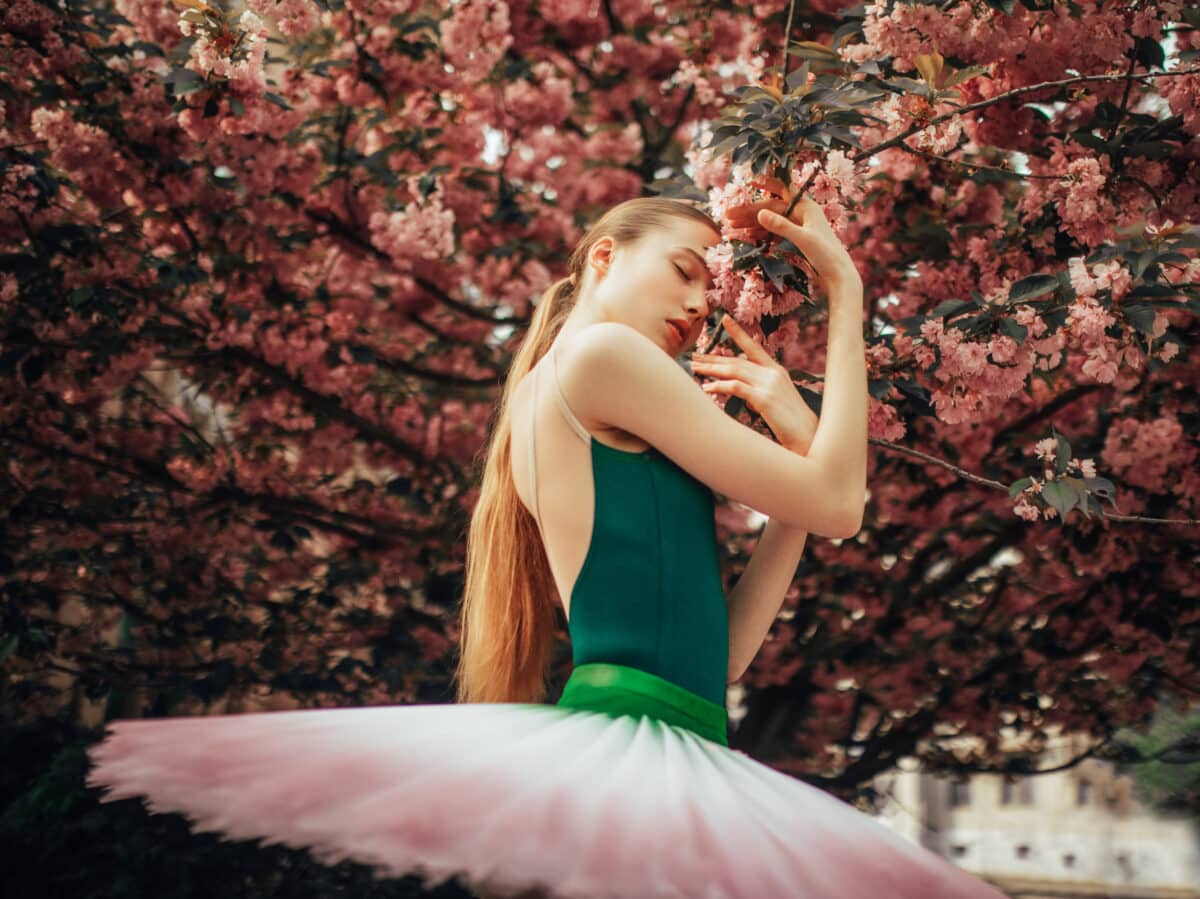
“The Unrealized Ideal” by Frederick Locker
My only love is always near, —
In country or in town.
I see her twinkling feet, I hear
The whisper of her gown.
She foots it ever fair and young.
Her locks are tied in haste,
And one is o’er her shoulder flung,
And hangs below her waist.
She ran before me in the meads;
And down this world-worn track
She leads me on; but while she leads
She never gazes back.
And yet her voice is in my dreams,
To witch me more and more;
That wooing voice! Ah me, it seems
Less near me than of yore.
Lightly I sped when hope was high,
And youth beguiled the chase;
I follow, -follow still, but I
Shall never see her Face.
“At Dawn” by Amy Levy
In the night I dreamed of you;
All the place was filled
With your presence; in my heart
The strife was stilled!
All night I have dreamed of you,
Now the morn is gray,
How shall I arise and face
The empty day?
“Do You?” by Anonymous
Do you feel sometimes in your dreaming
The weight of my head on your breast?
Or the velvety touch of my kisses
On your lips in passion impressed?
Do you hold me sometimes in your dreaming
In a rapturous clasp on your heart?
Or cry in the depth of your yearning
” Tis cruel to keep us apart?”
Does my hand with its lingering caresses
Touch yours with its magic again,
Till starting you wake from the pressure
To find that your dreaming was vain?
Though light as the fall of a rose leaf,
You’d feel the sweet weight of my kiss,
And starting you’d waken to kiss me,
And taste Love’s ineffable bliss?
Ah! never again shall I see you,
Nor look in your proud grand face,
Ne’er feel the sweet balm of your kisses,
Or thrill to your tender embrace.
For our lives lie asunder forever,
More wide than the cruel sea,
But I love you! I love you! I love you!
And in dreams I will linger with thee.

“Longings” by Anonymous
If I could hold your hands to-night,
Just for a little while, and know
That only I, of all the world,
Possessed them so.
A slender shape in that old chair,
If I could see you here to-night,
Between me and the twilight pale
So light and frail.
Your cool white dress, its folding lost
In one broad sweep of shadow gray;
Your weary head just drooped aside,
That sweet old way.
Bowed like a flower-cup splashed with rain,
The darkness crossing half your face,
And just the glimmer of a smile
For one to trace.
If I could see your eyes that reach
Far out into the farthest sky,
Where past the trail of dying suns
The old years lie.
Or touch your silent lips to-night,
And steal the sadness from their smile,
And find the last kiss they have kept
This weary while!
If it could be-Oh, all in vain
The restless trouble of my soul
Sets, as the great tides of the moon,
Toward your control!
In vain the longings of the lips,
The eye’s desire, and the pain;
The hunger of the heart—O love,
Is it in vain.
“Last Night” by CHR. Winther (Theo. Marziali, Translator)
Last night the nightingale woke me,
Last night when all was still,
It sang in the golden moonlight,
From out the woodland hill.
I opened my window so gently;
I looked on the dreaming dew, —
And oh the bird, my darling,
Was singing, singing of you.
I think of you in the daytime,
I dream of you by night,
I wake and would you were here love,
And tears are blinding my sight.
I hear a low breath in the lime tree,
The wind is floating thro’,
And oh ! the night, my darling,
Is sighing, sighing for you.
O think not I can forget you ;
I could not tho’ I would,
I see you in all around me,
The stream, the night, the wood,
The flowers that slumber so gently,
The stars above the blue,
Oh! heaven itself my darling,
Is praying, praying for you.
“I Would Live In Your Love” by Sara Teasdale
I would live in your love as the sea-grasses live in the sea,
Borne up by each wave as it passes, drawn down by each wave that recedes;
I would empty my soul of the dreams that have gathered in me,
I would beat with your heart as it beats, I would follow your soul
as it leads.
Short Poems About Forbidden Love

“To Electra” by Robert Herrick
I dare not ask a kiss;
I dare not beg a smile ;
Lest having that or this,
I might grow proud the while.
No, no, the utmost share
Of my desires shall be,
Only to kiss that air
That lately kisséd thee.
“Make Ready, Fair Lady, To-night” by John Dryden
He: Make ready, fair Lady, to-night;
Come down to the door below;
For I will be there
To receive you with care,
And with your true Love you shall go.
She: And when the Stars twinkle so bright,
Then down to the door will I creep;
To my Love I will fly,
E’er the Jealous can spy,
And leave my old Daddy asleep.
“Two Sides of It” by Anonymous
HE.
If you were but in love with me
As I, dear, am with you—
Think how your heart would grieve to see
Each cherished hope untrue;
And think how dark the world would seem
At the sad ending of your dream!
SHE.
If you were not in love with me
As I am not with you,
Imagine how you’d long to flee
As I now yearn to do
Think, think, oh think! how bored you’d be
If you were not in love with me.
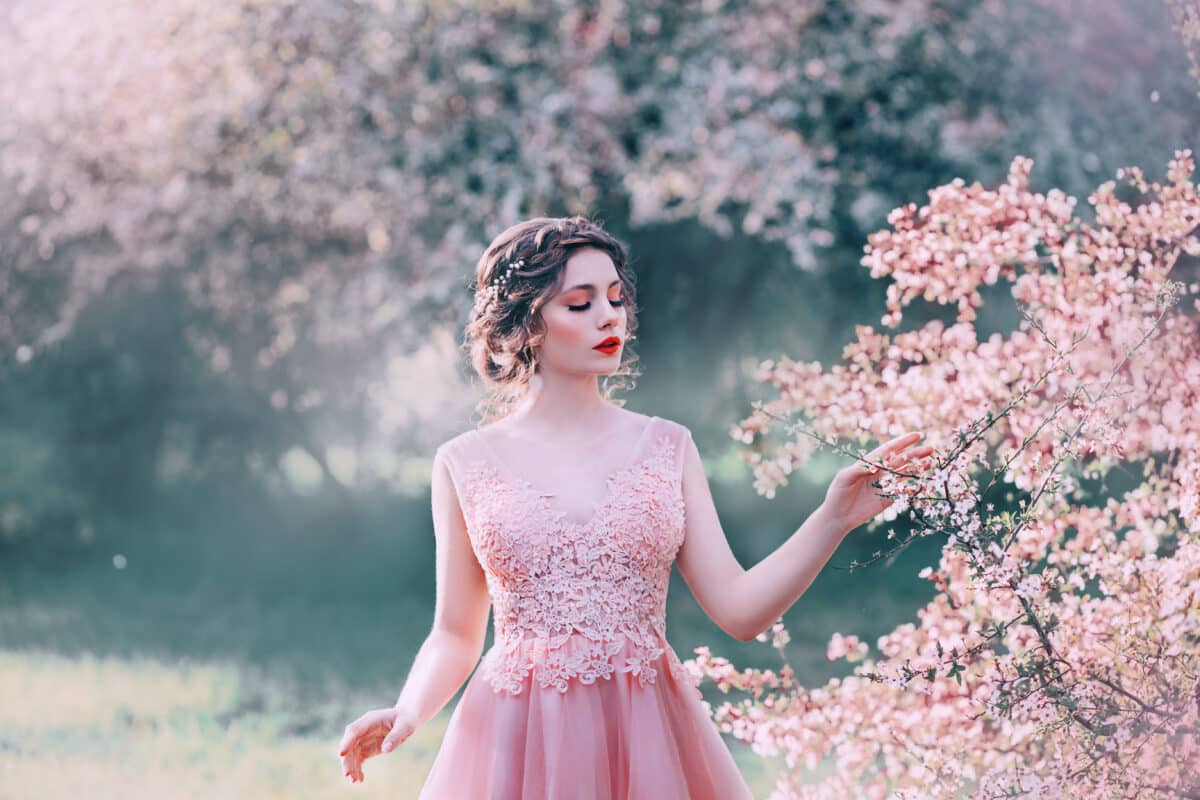
“An Explanation” by Walter Learned
Her lips were so near
That-what else could I do?
You’ll be angry, I fear,
But her lips were so near
Well, I can’t make it clear,
Or explain it to you,
But her lips were so near
That-what else could I do?
“The Sweetest Flower That Blows” by Frederick Peterson
The sweetest flower that blows
I give you as we part;
For you it is a rose;
For me it is my heart.
The fragrance it exhales
(Ah, if you only knew! ) ,
Which but in dying fails,
It is my love of you.
The sweetest flower that grows
I give you as we part;
You think it but a rose;
Ah, me! it is my heart.
“But Oh! ’twas hard to have him go” by Celia E. Gardiner
But oh! ’twas hard to have him go, —to know
Day after day must pass without one sight
Of him who was so dear, so dear! to pine,
And sigh, and long for one hand- clasp; one sound
Of that soft, pleasant voice, to me so sweet;
One glance of those dear eyes I loved to meet.
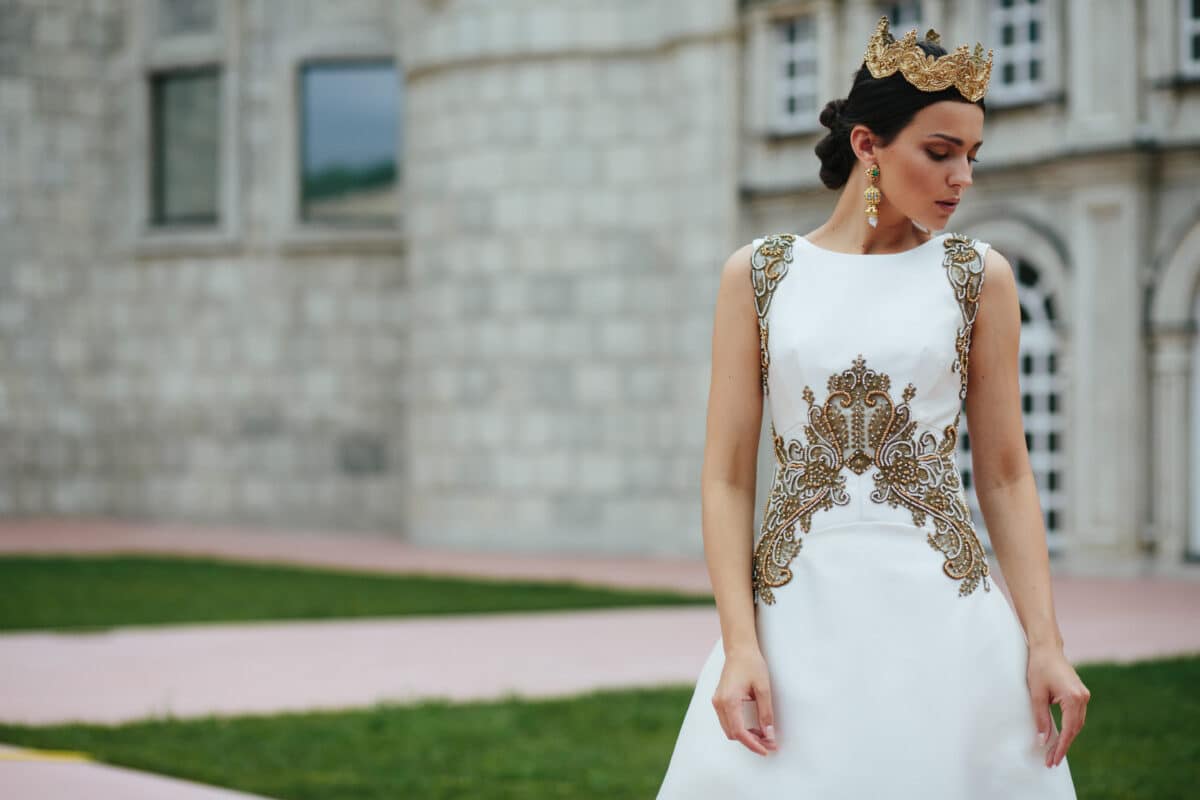
“They Parted” by James Robinson Planche
They parted- if it be to part
Still to live in each other’s heart,
Forever one dear face behold,
Forever one dear form enfold,
One voice forever seem to hear.
“Passion” by Madison Julius Cawein
The wine-loud laughter of indulged Desire
Upon his lips, and, in his eyes, the fire
Of uncontrol, he takes in reckless hands, –
And interrupts with discords, – the sad lyre
Of LOVE’S deep soul, and never understands.
